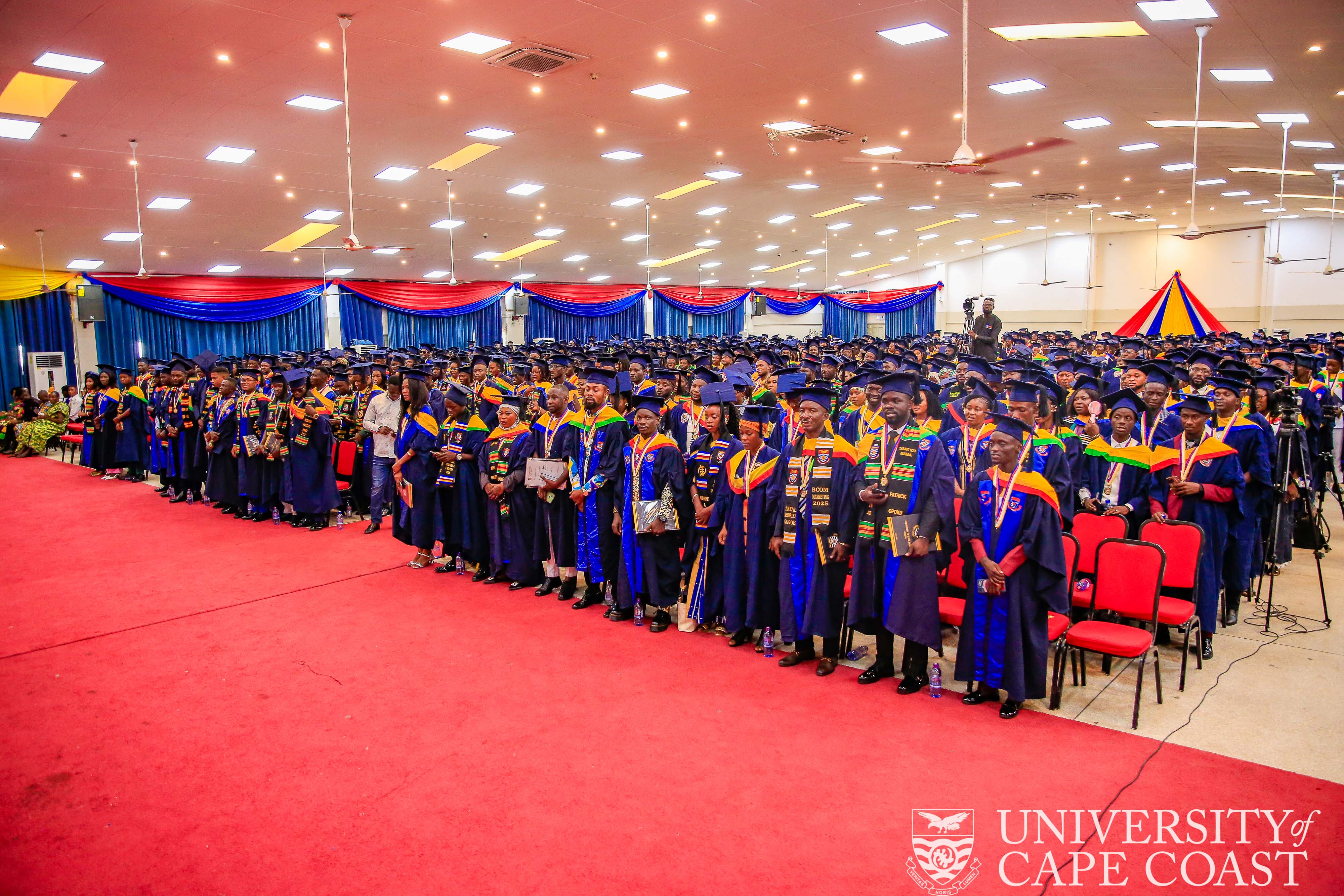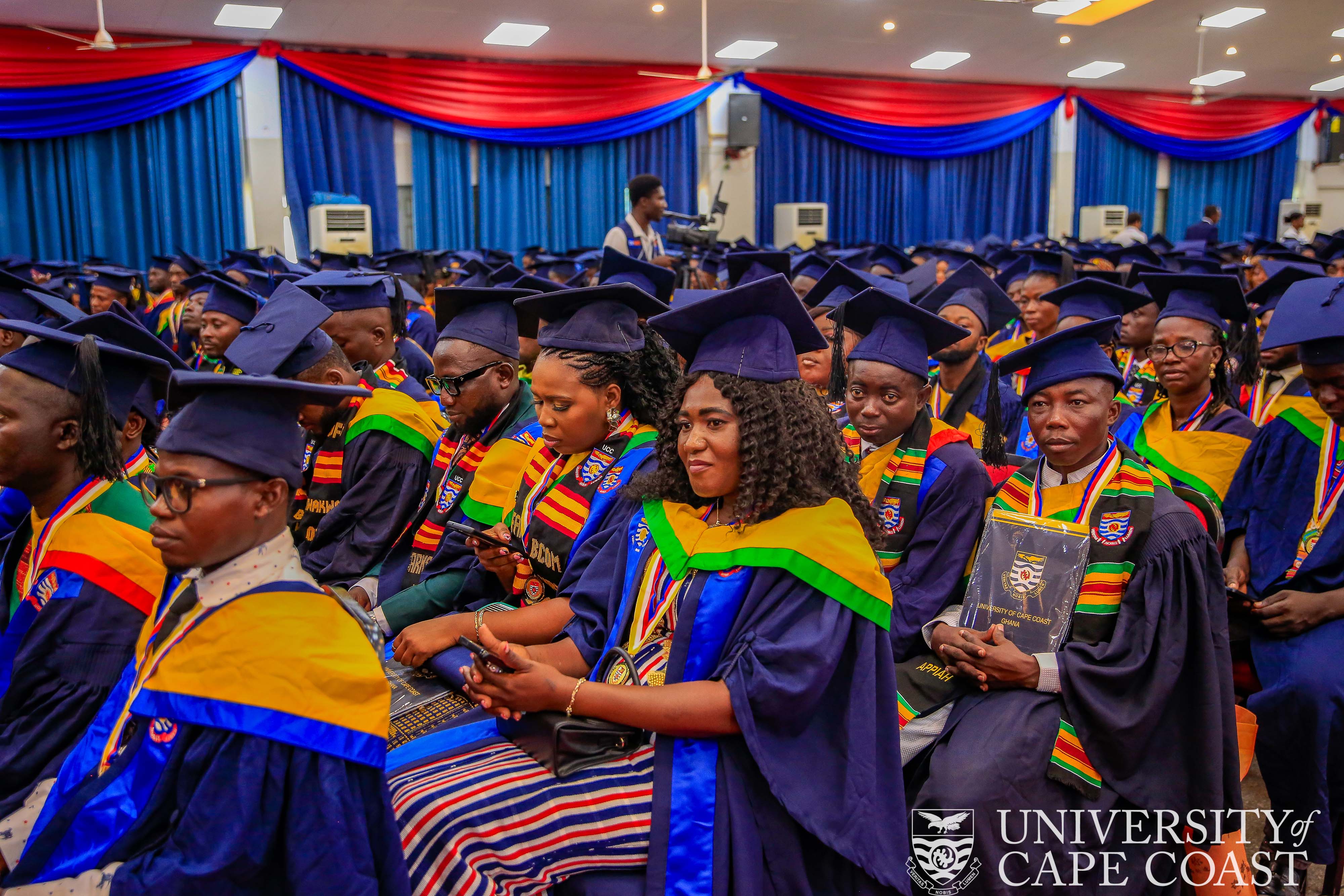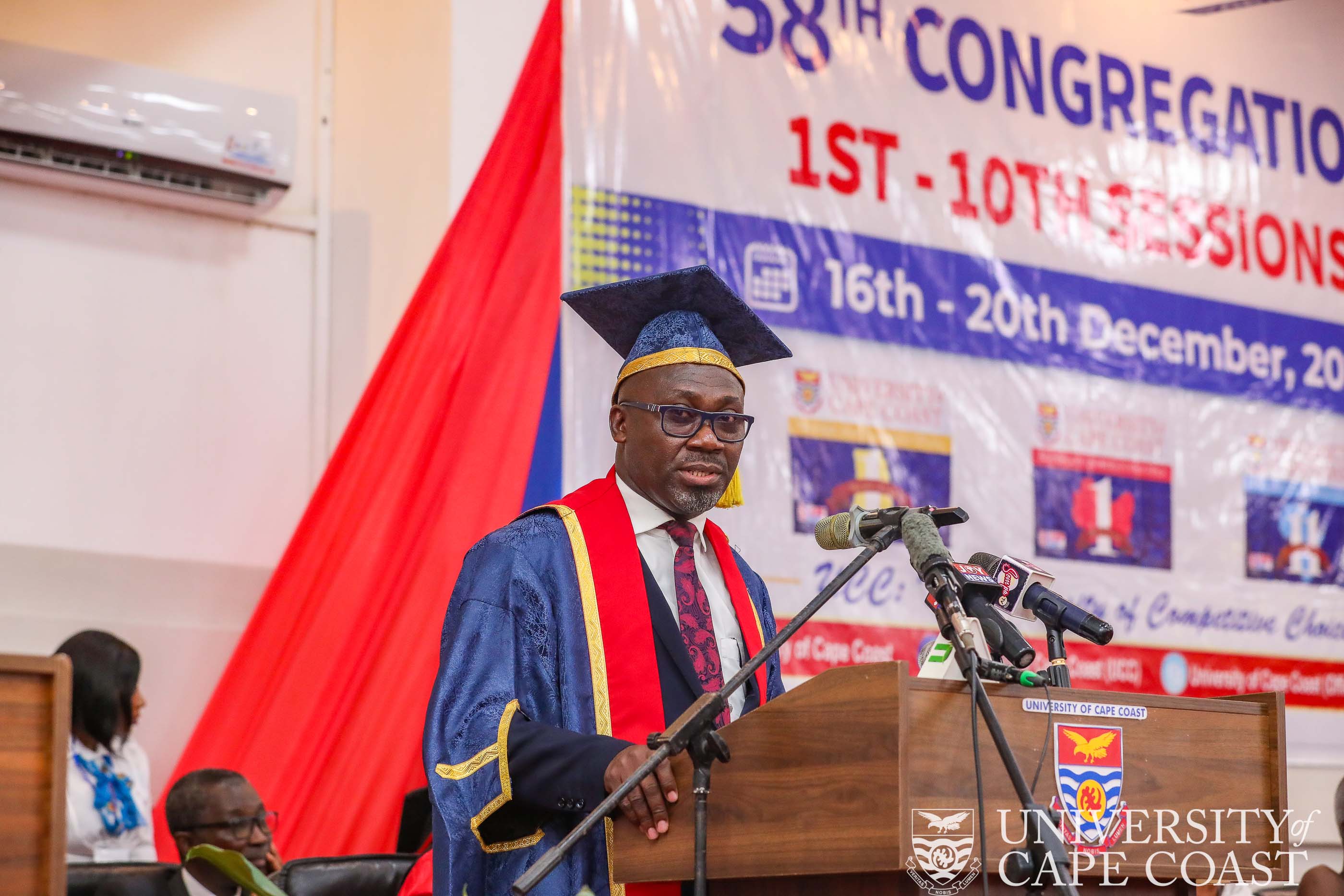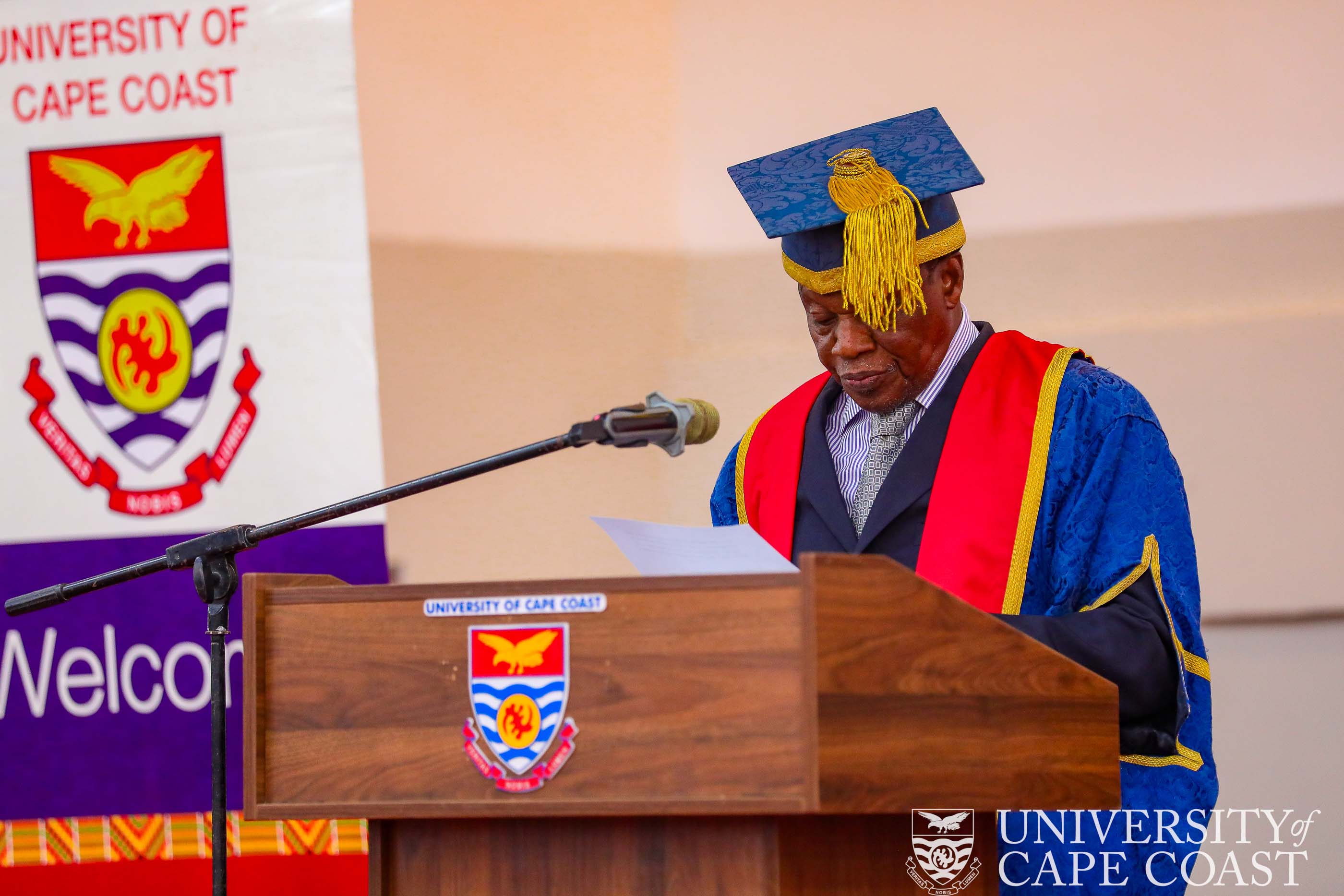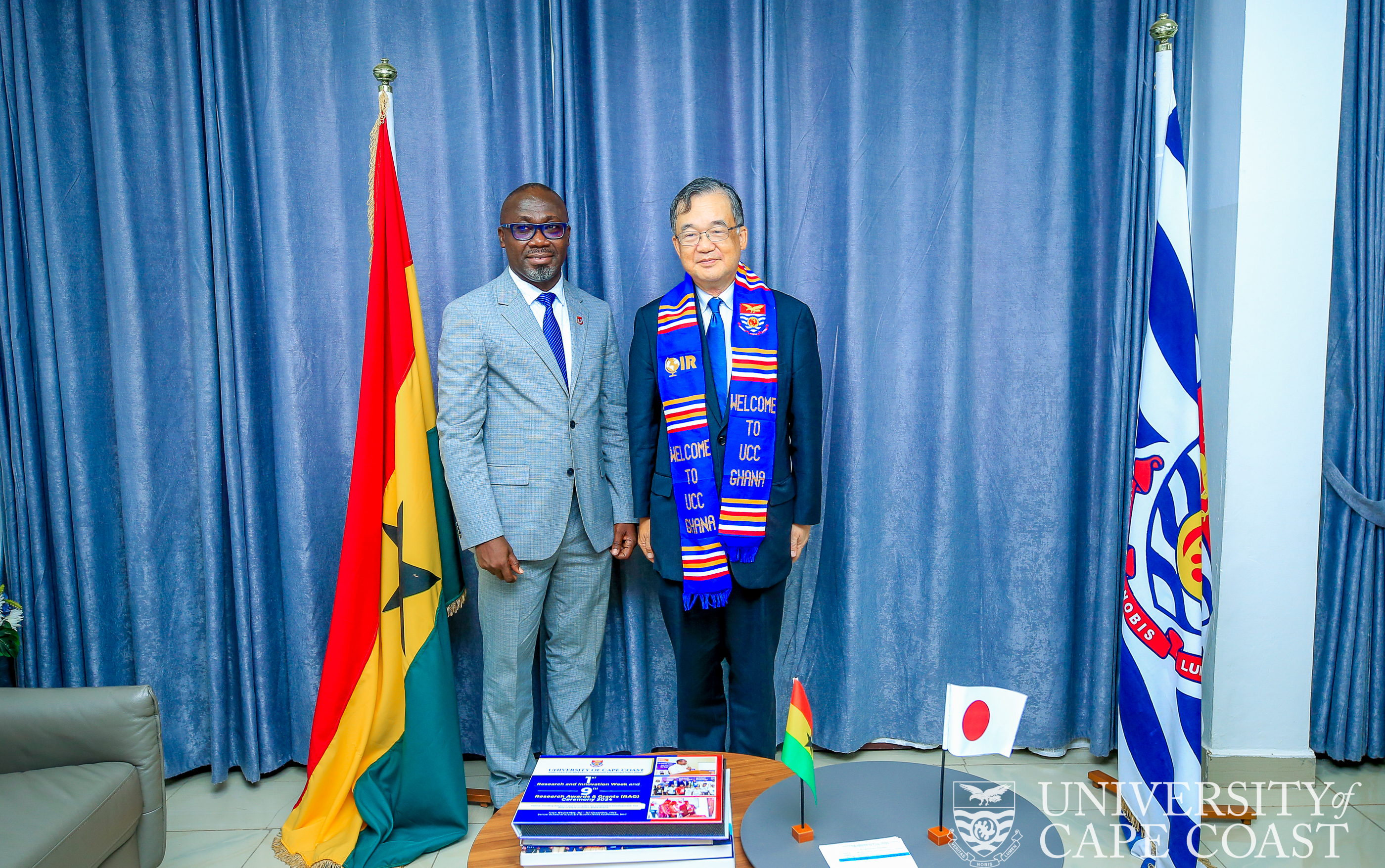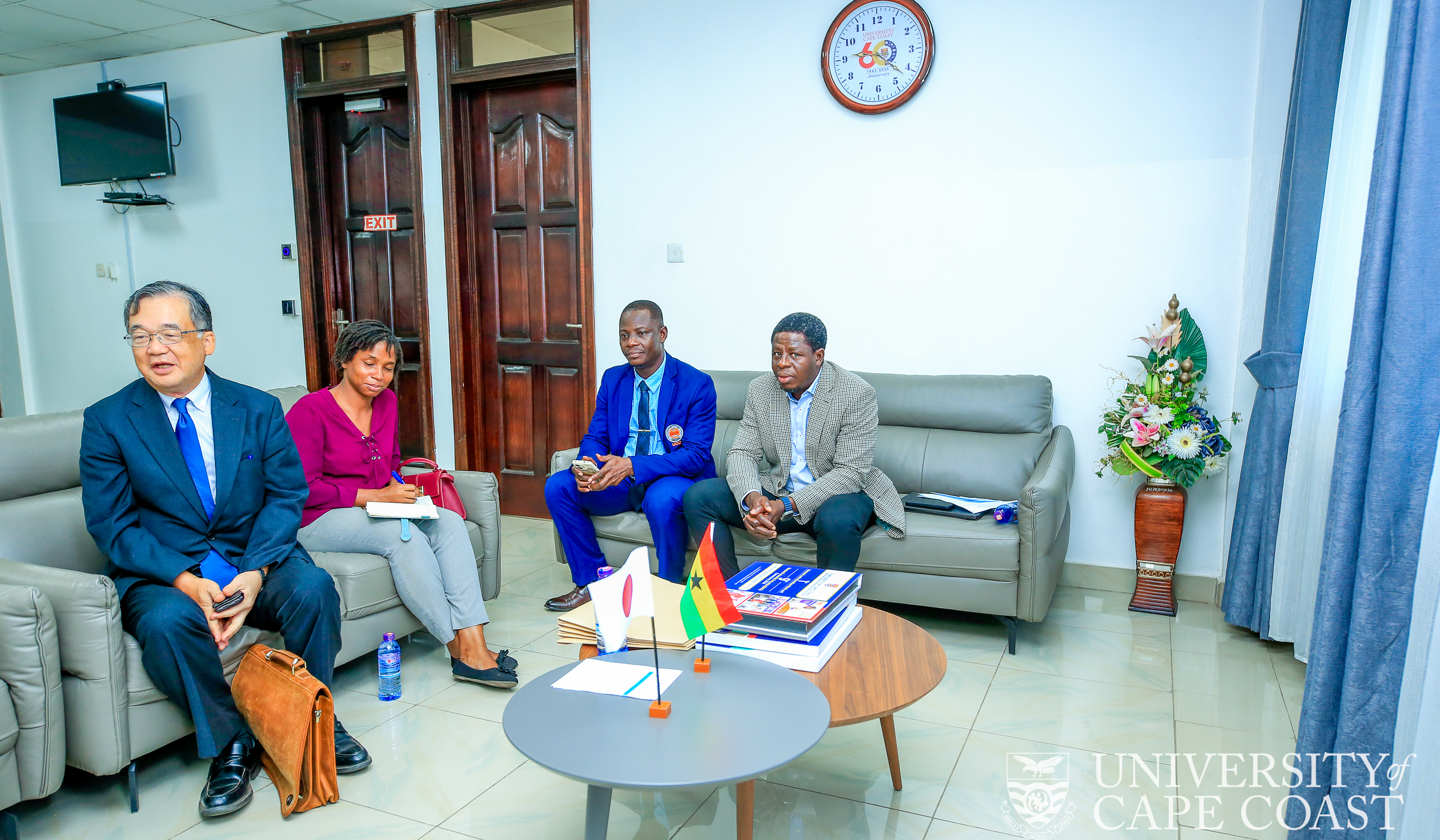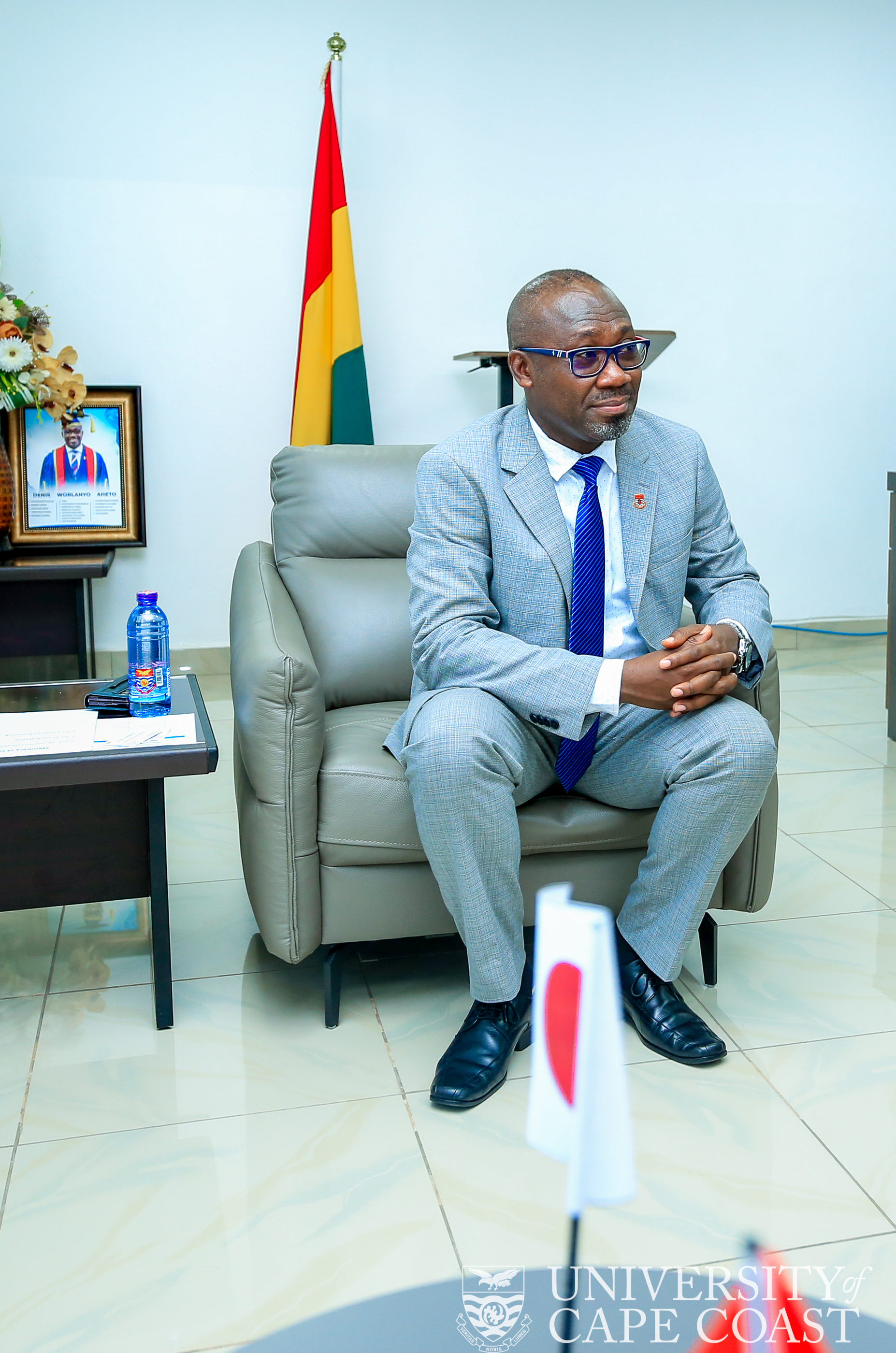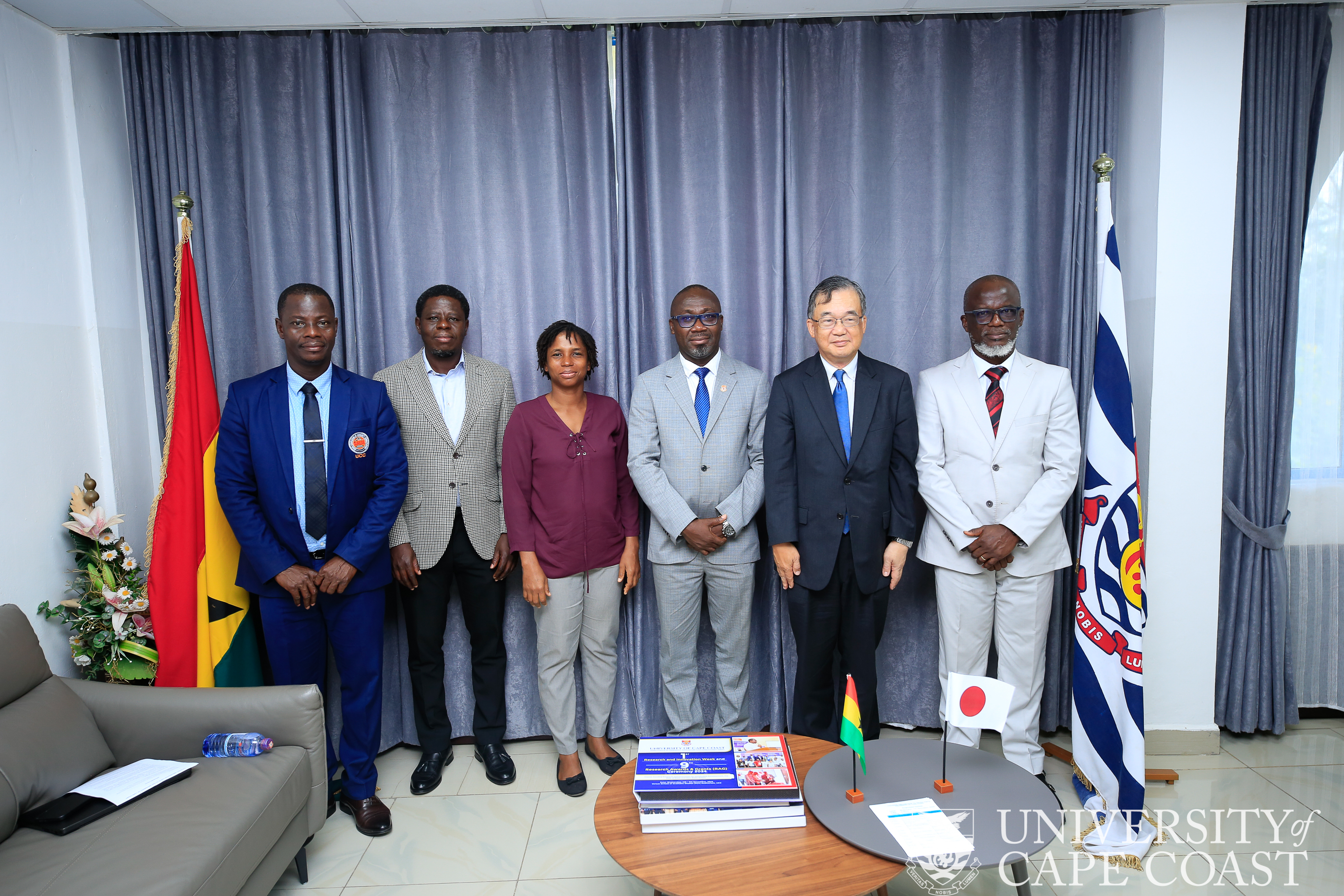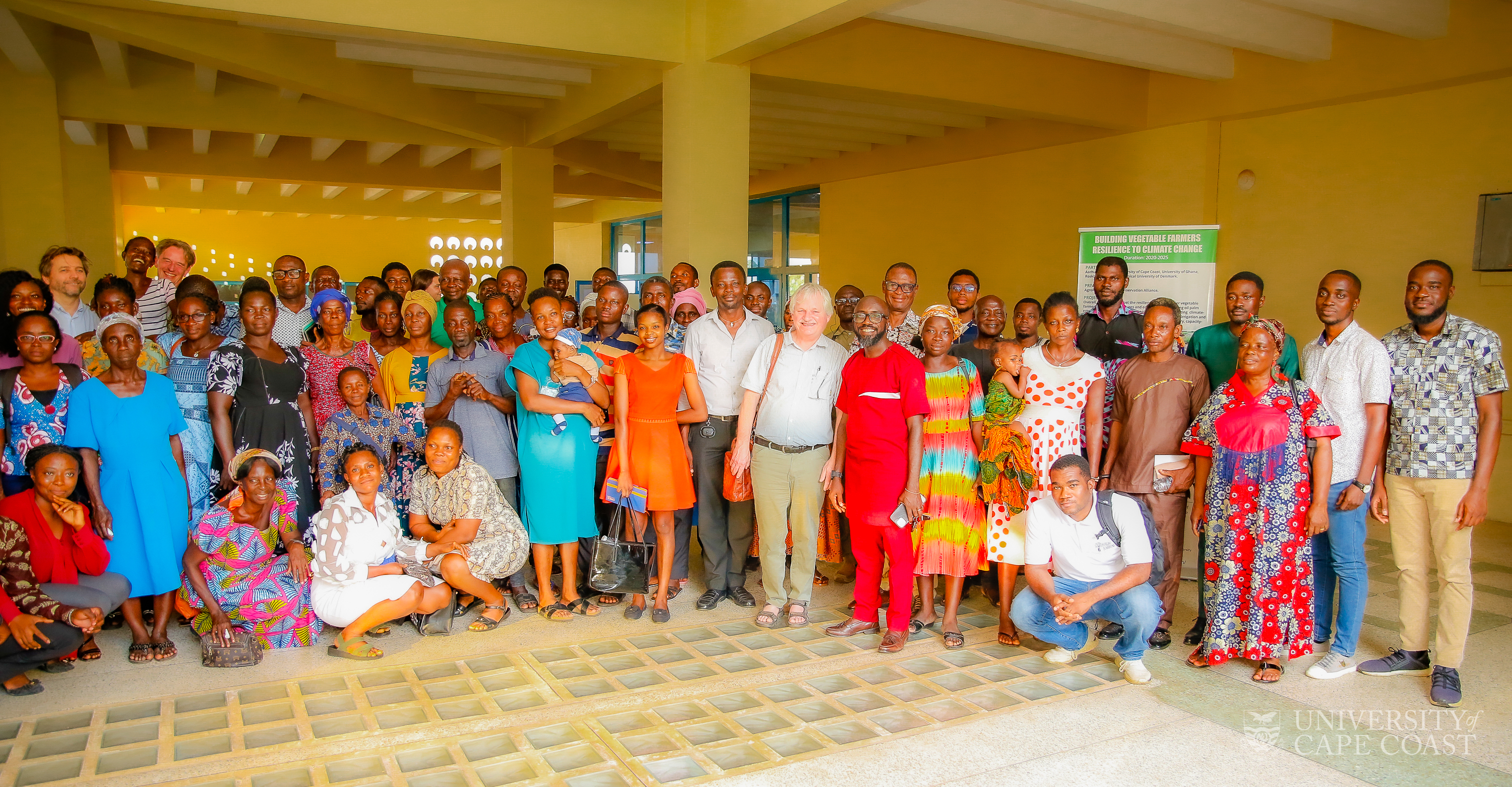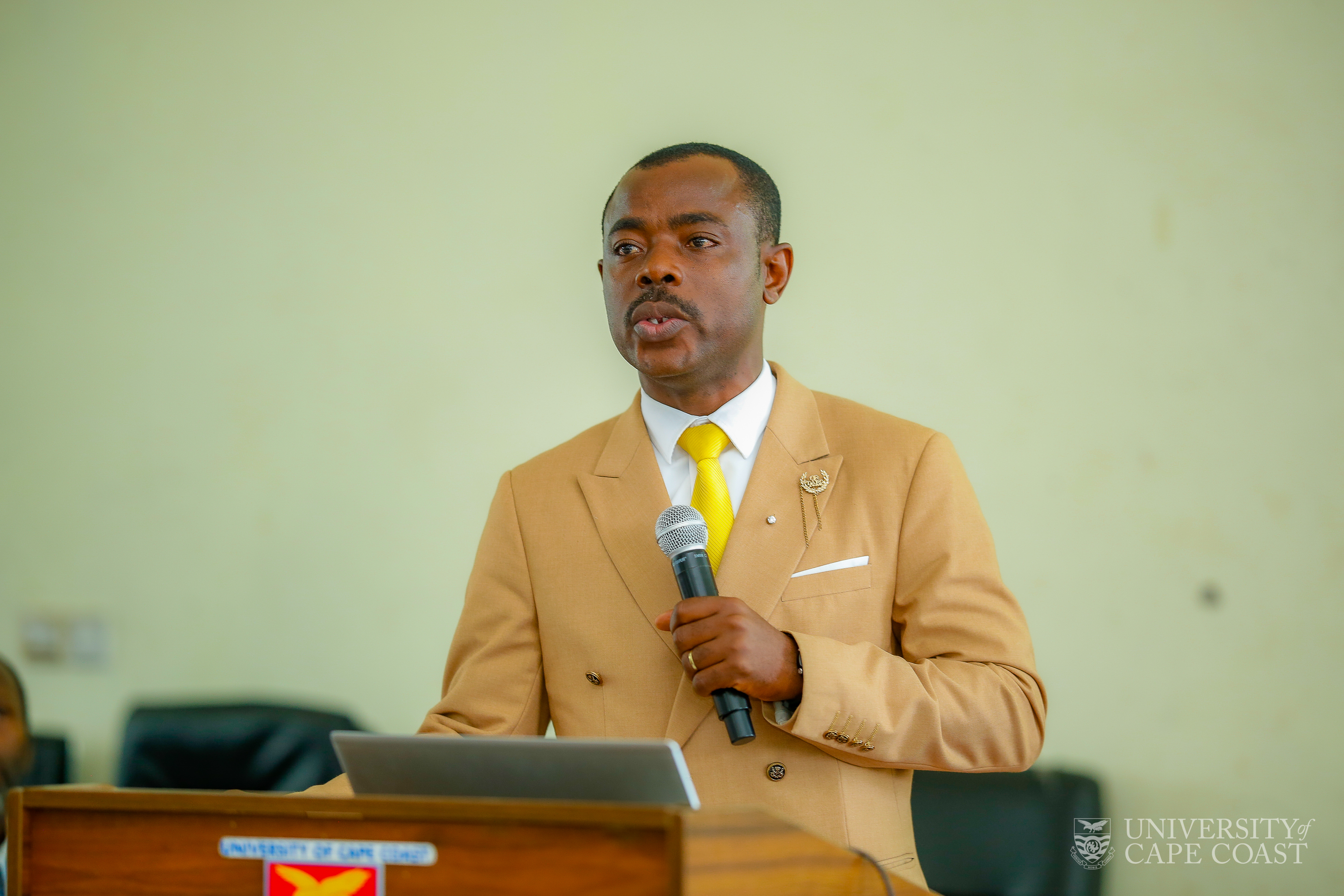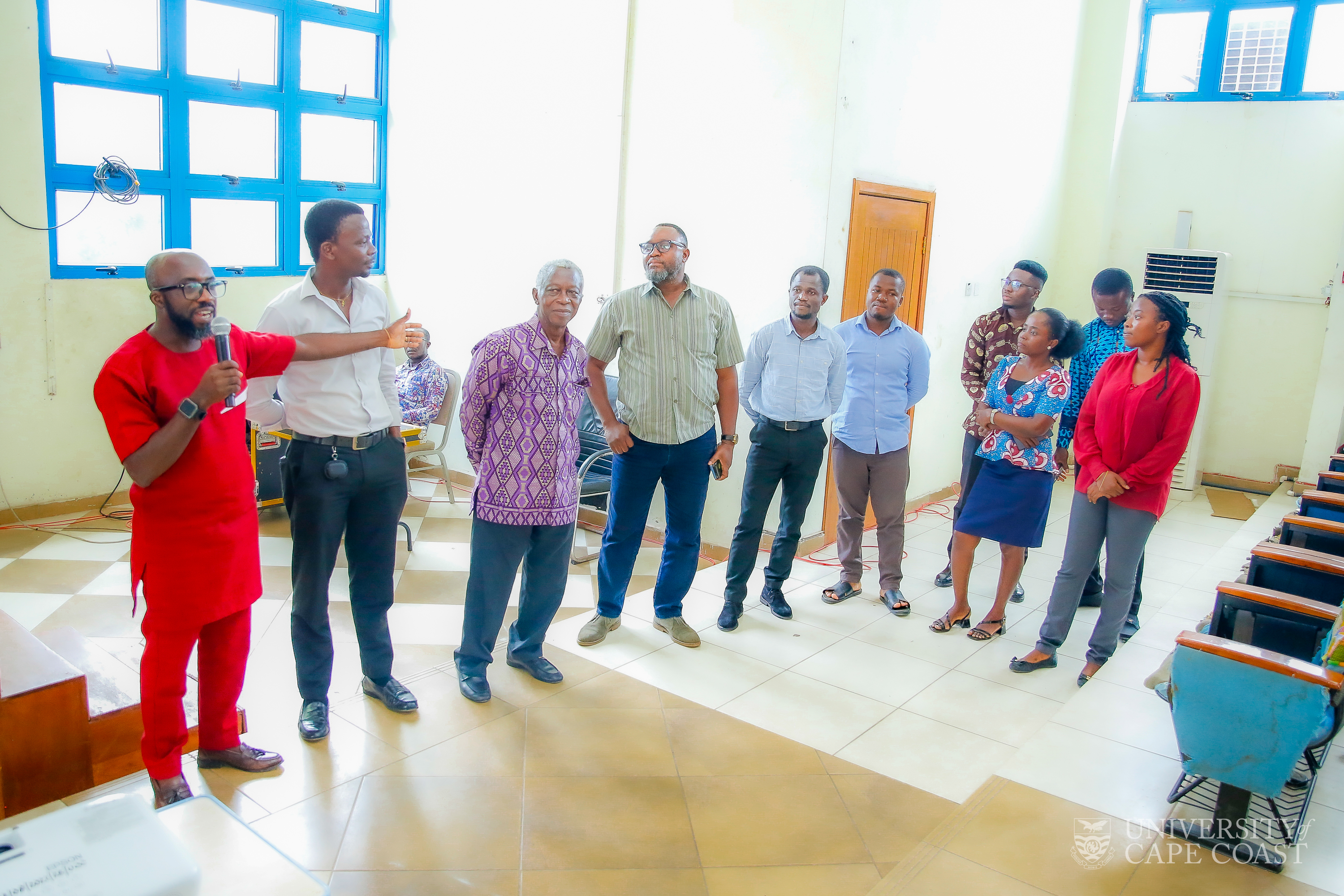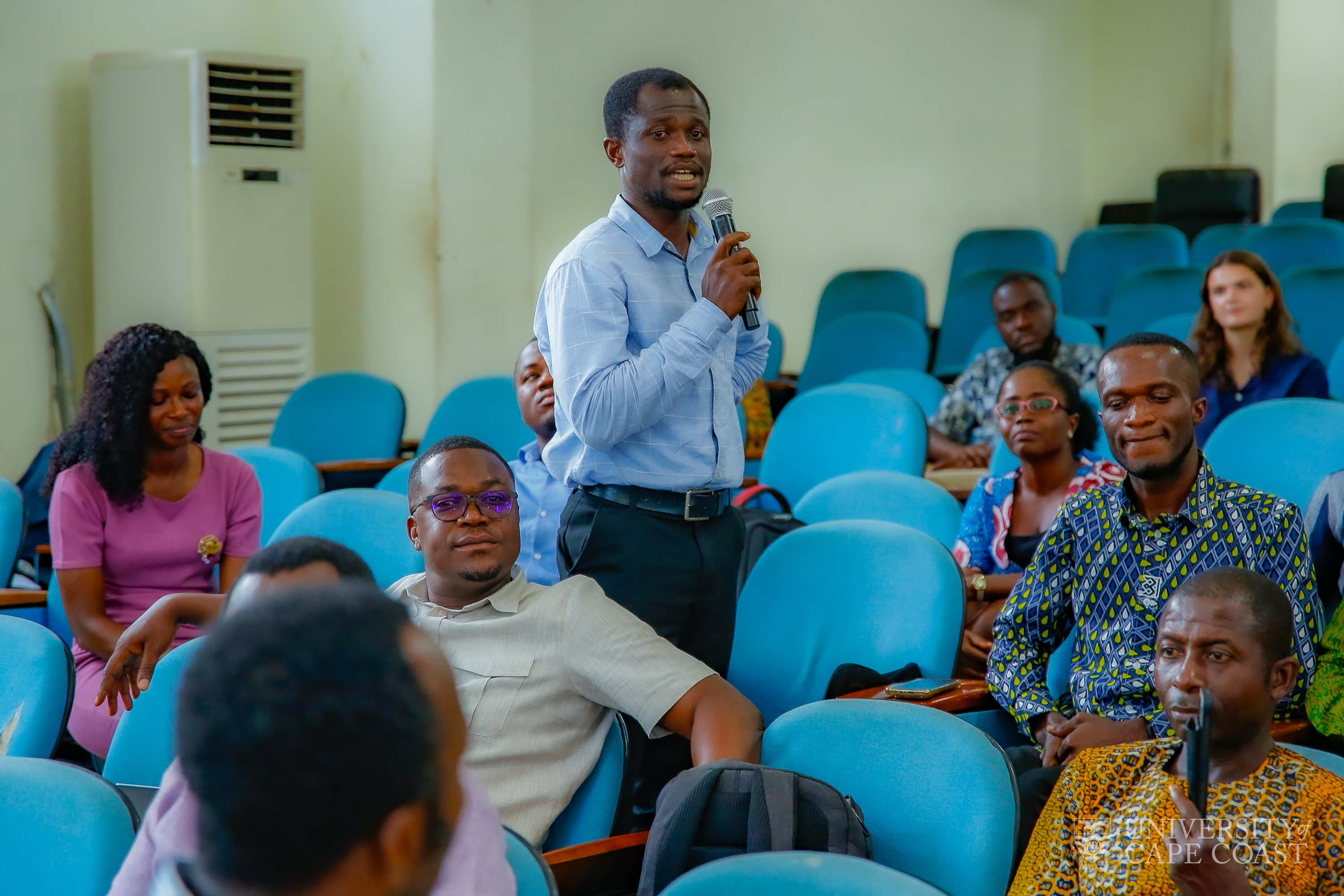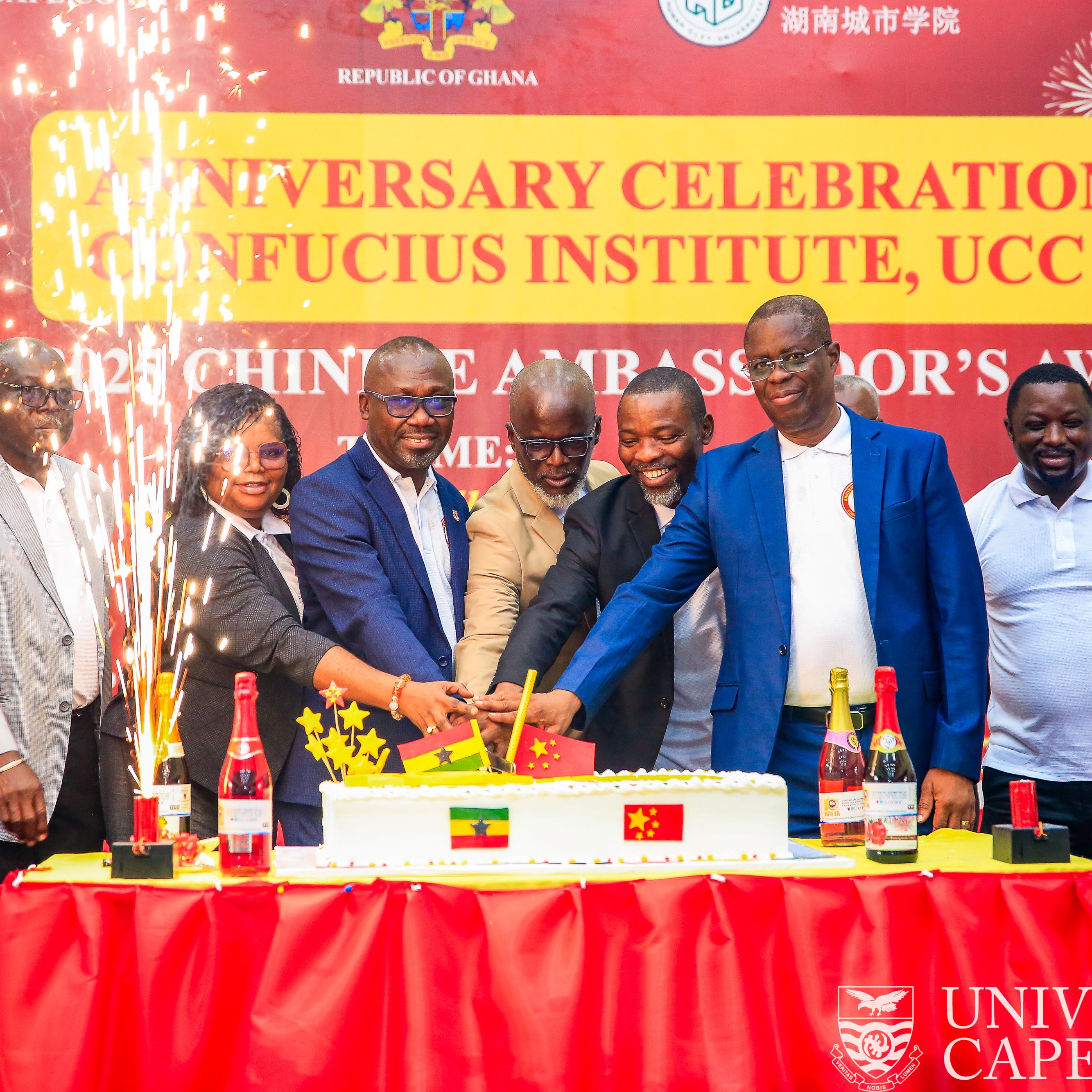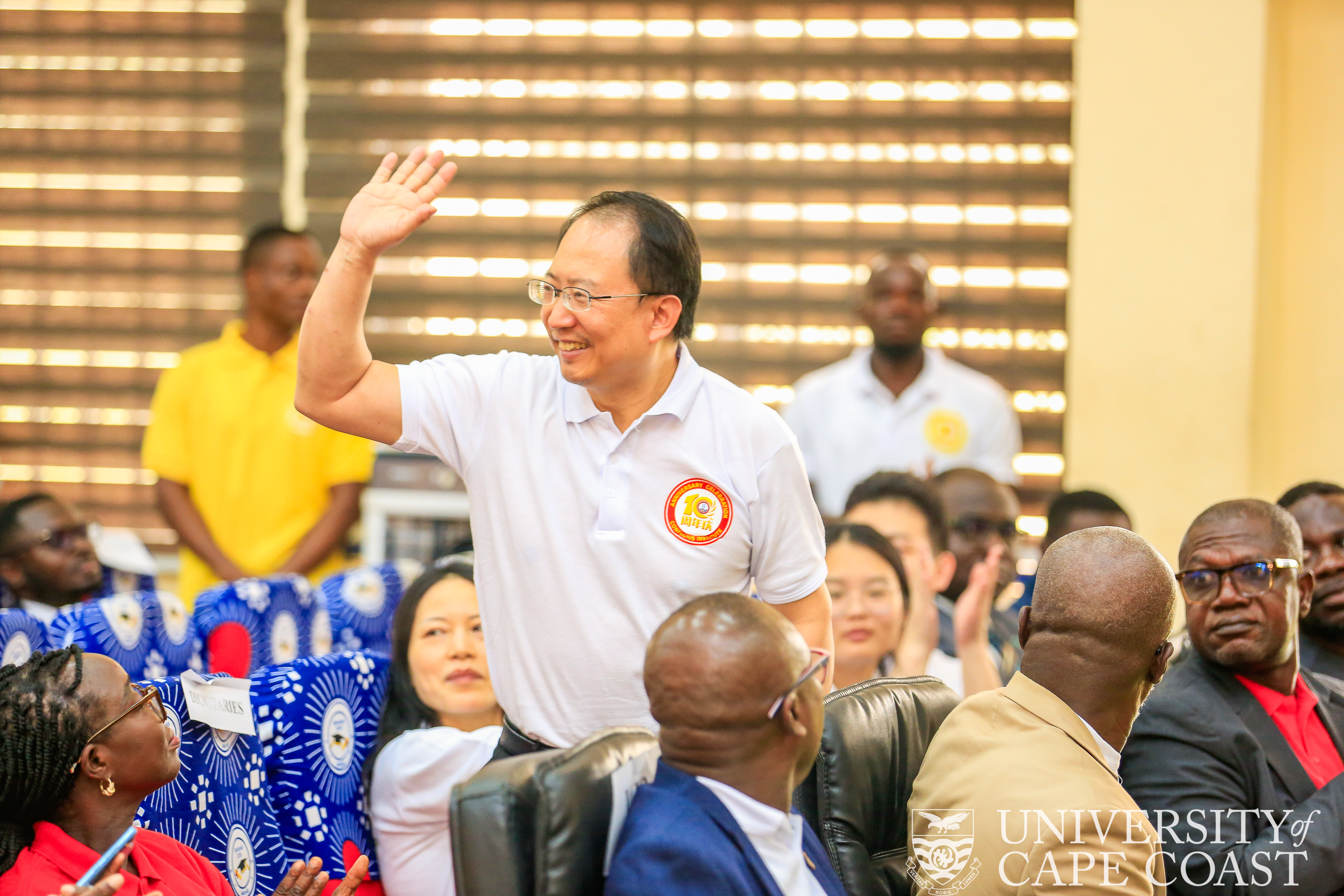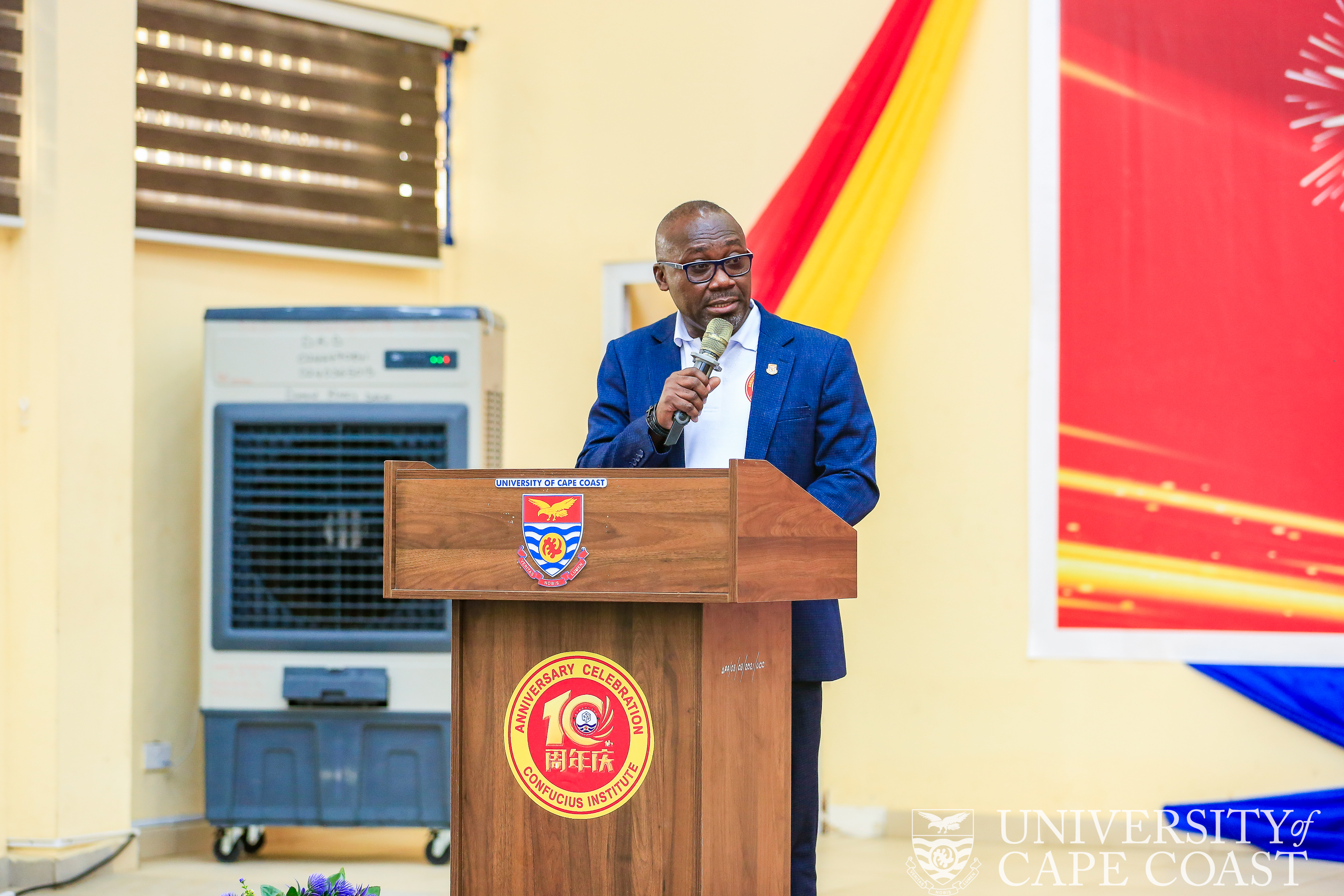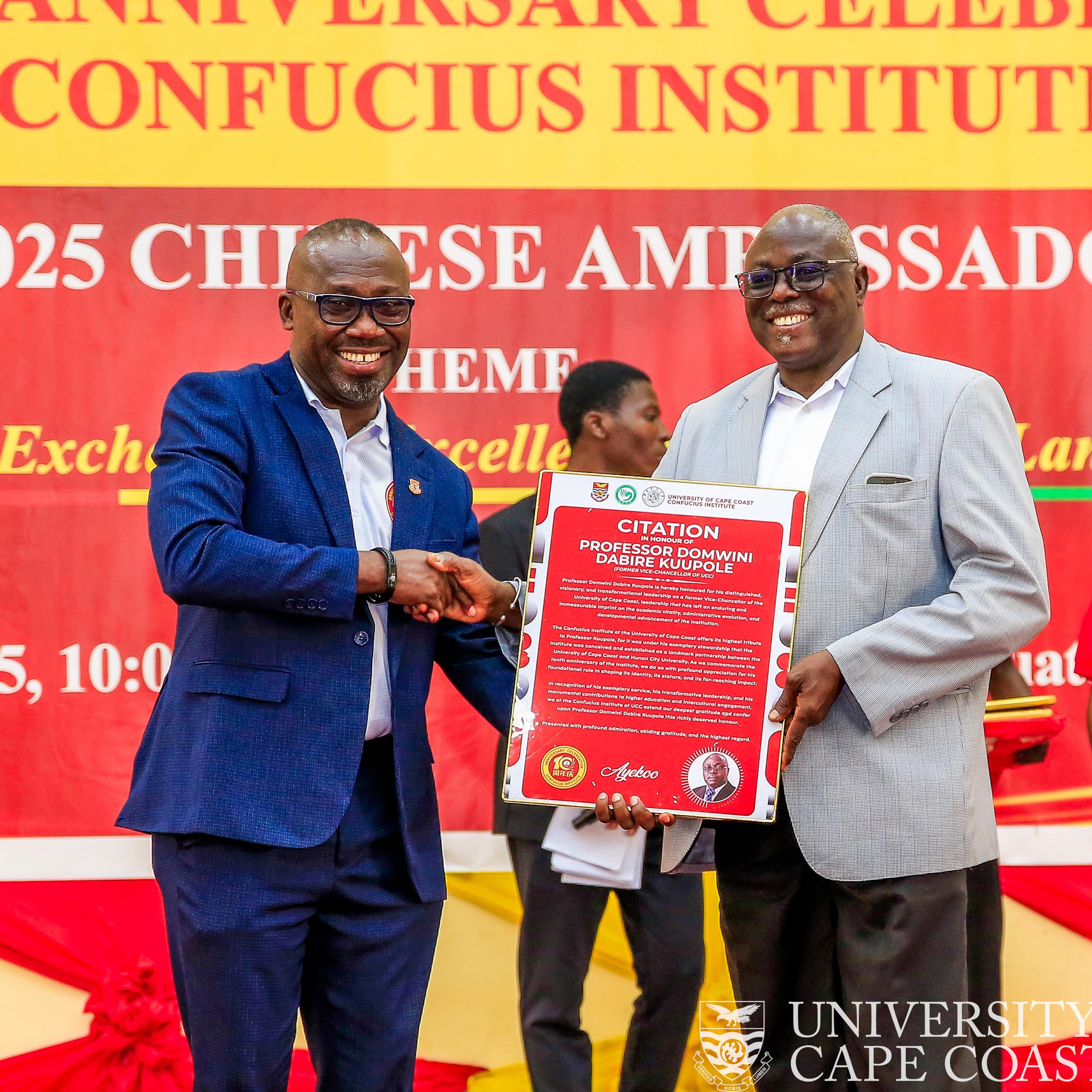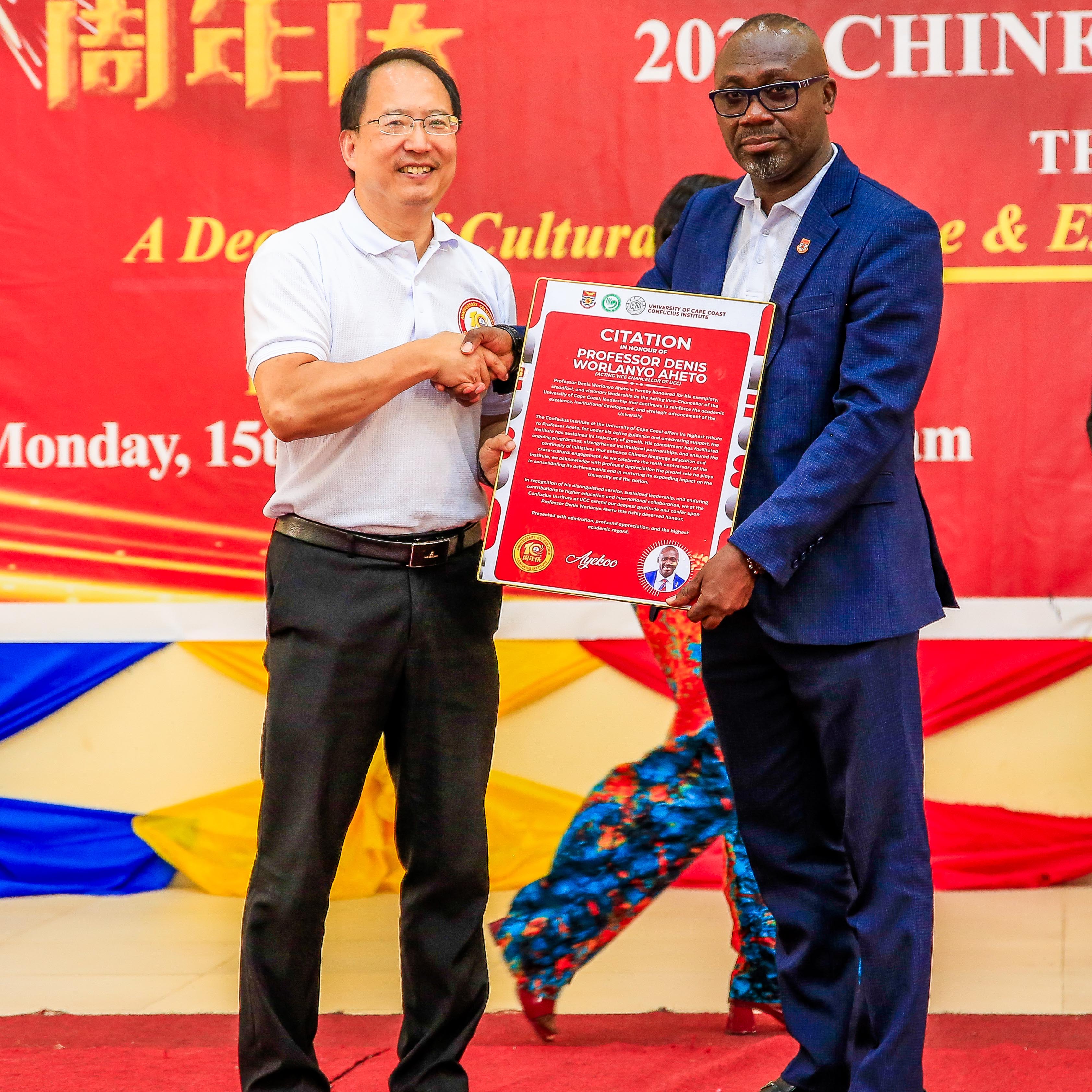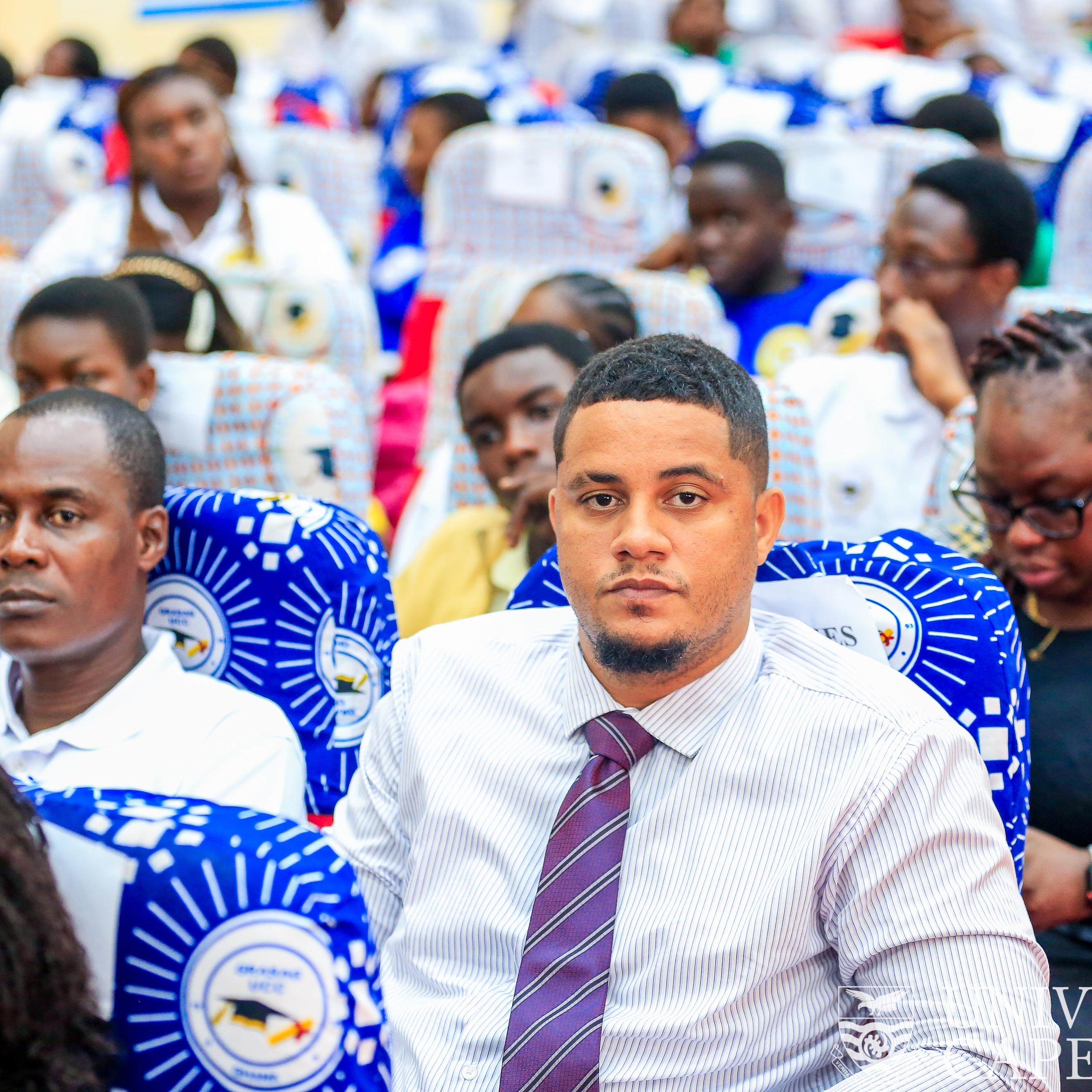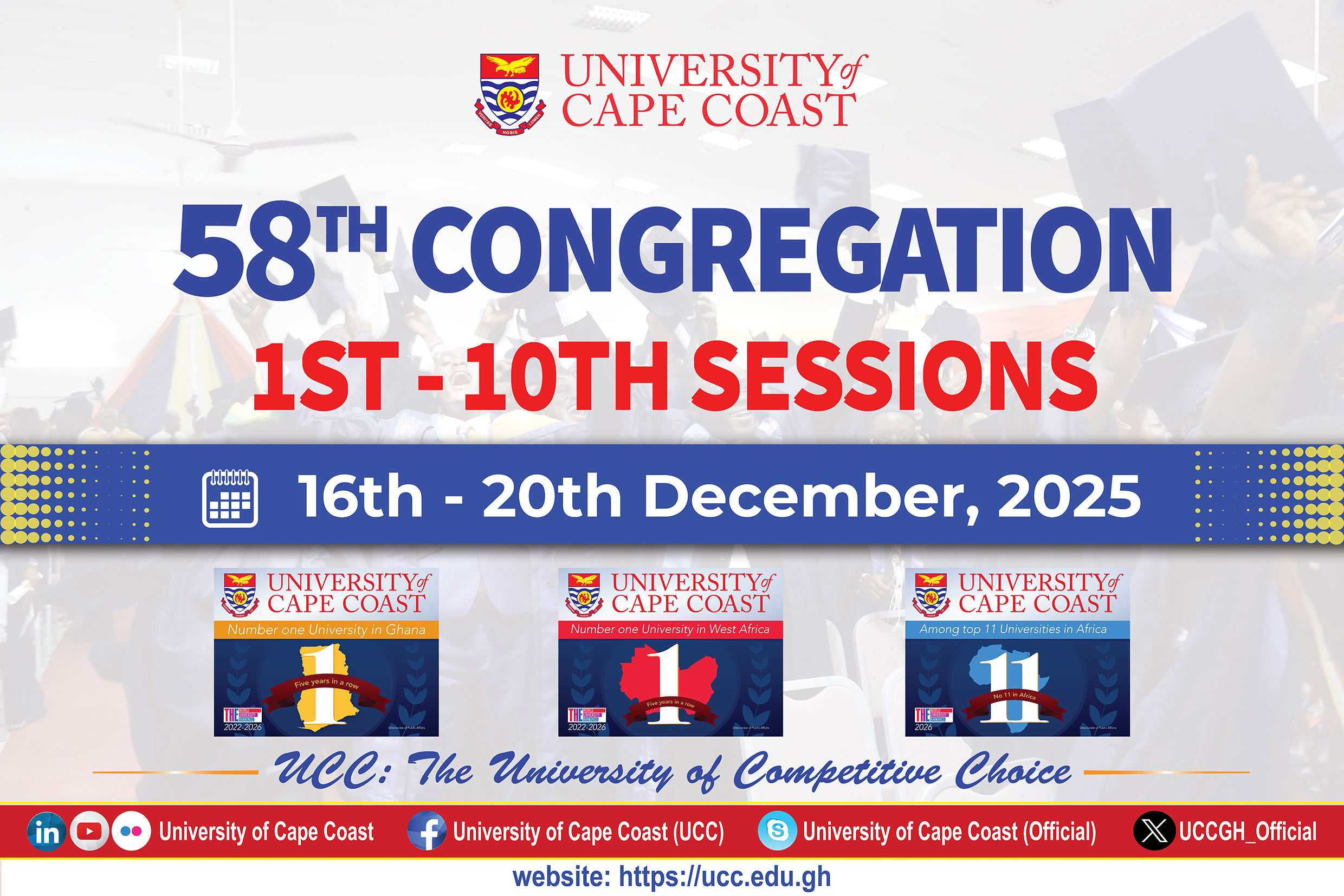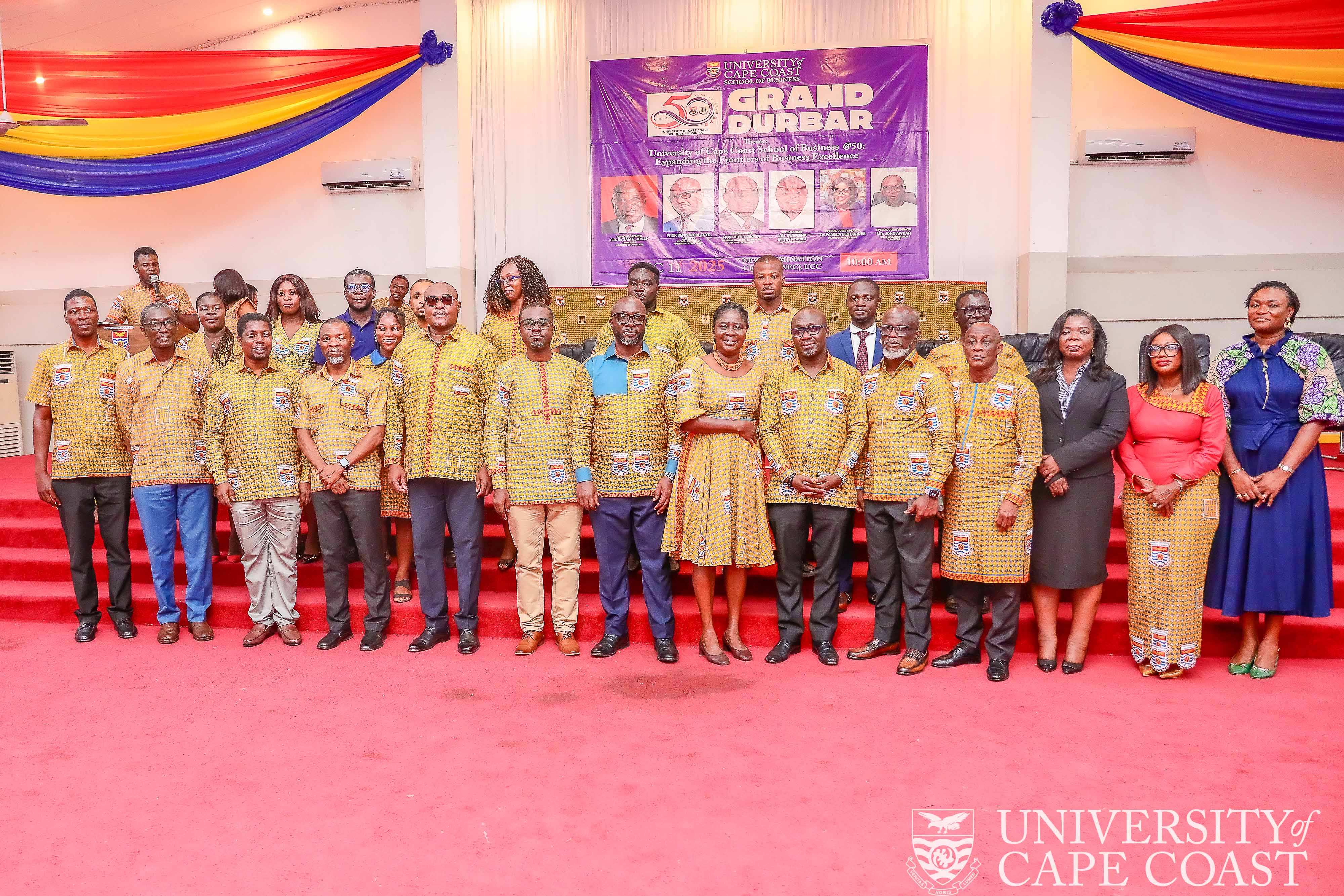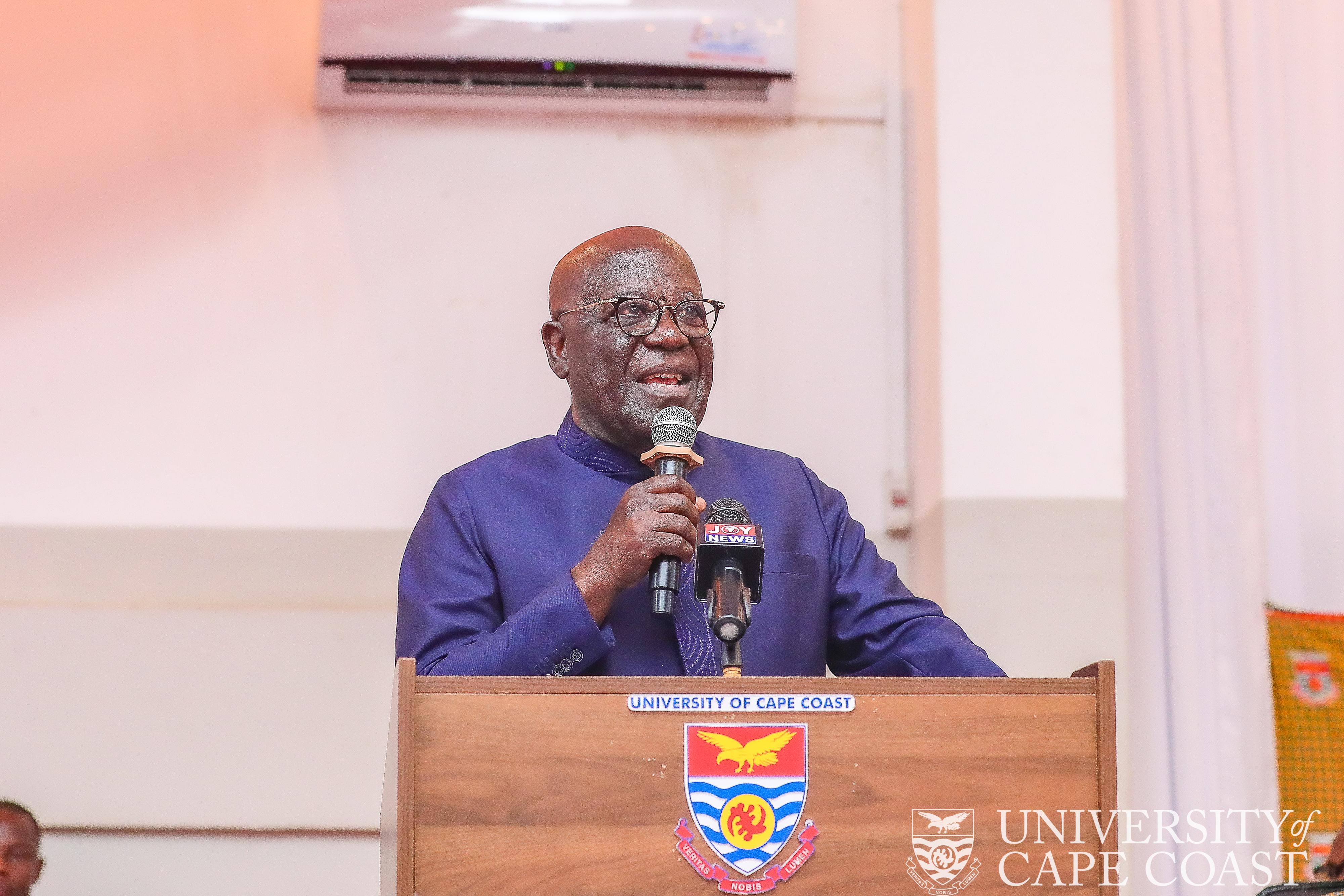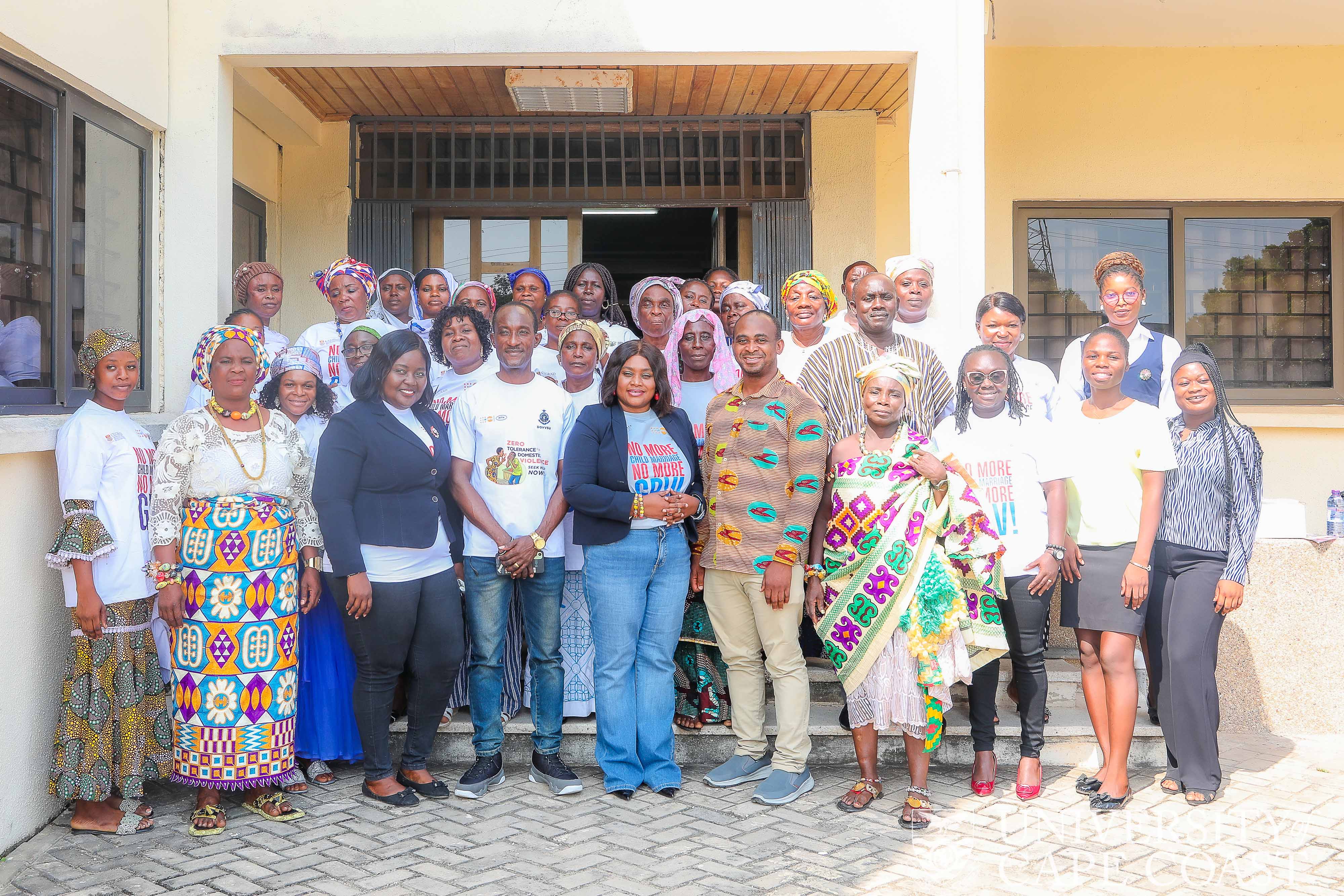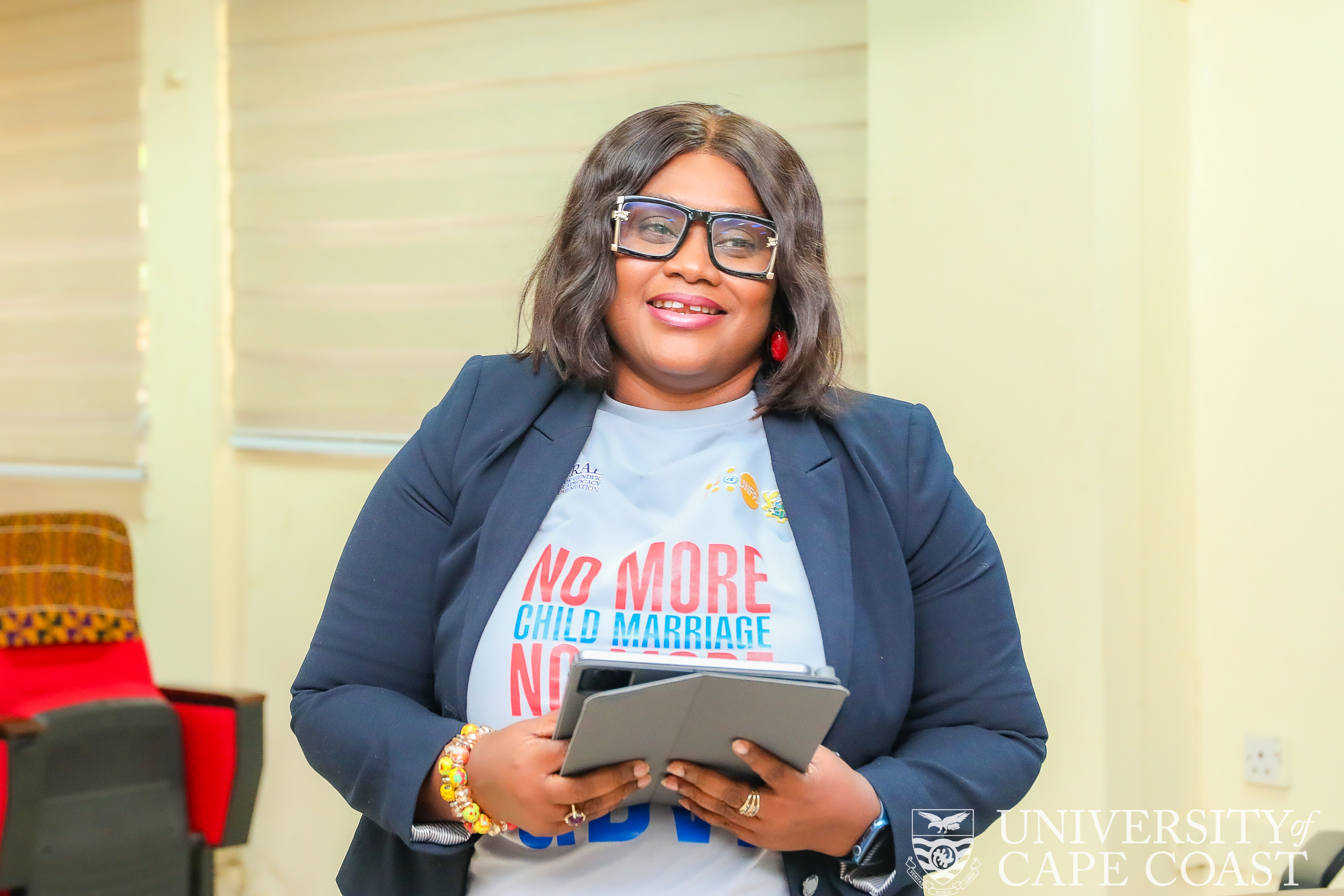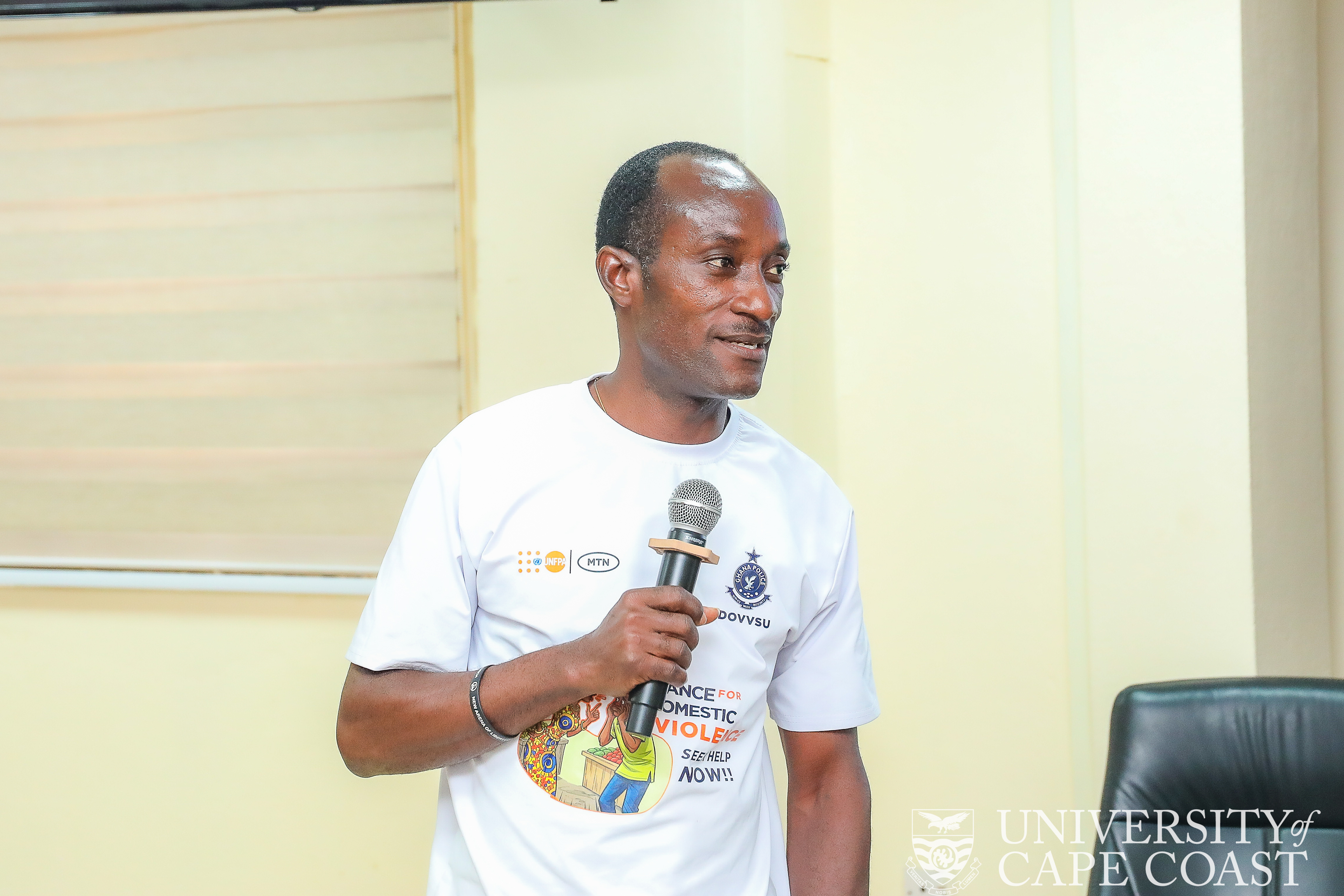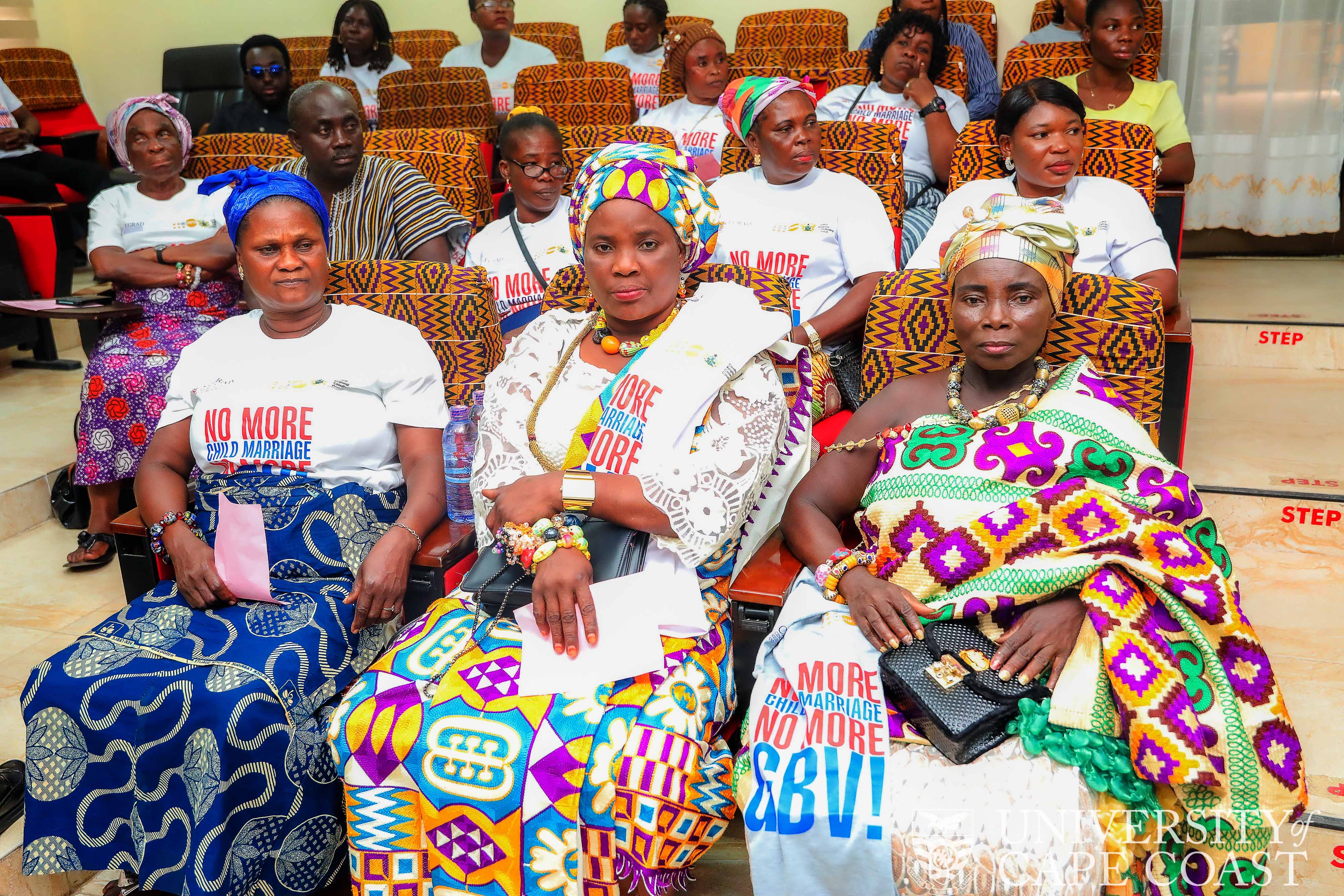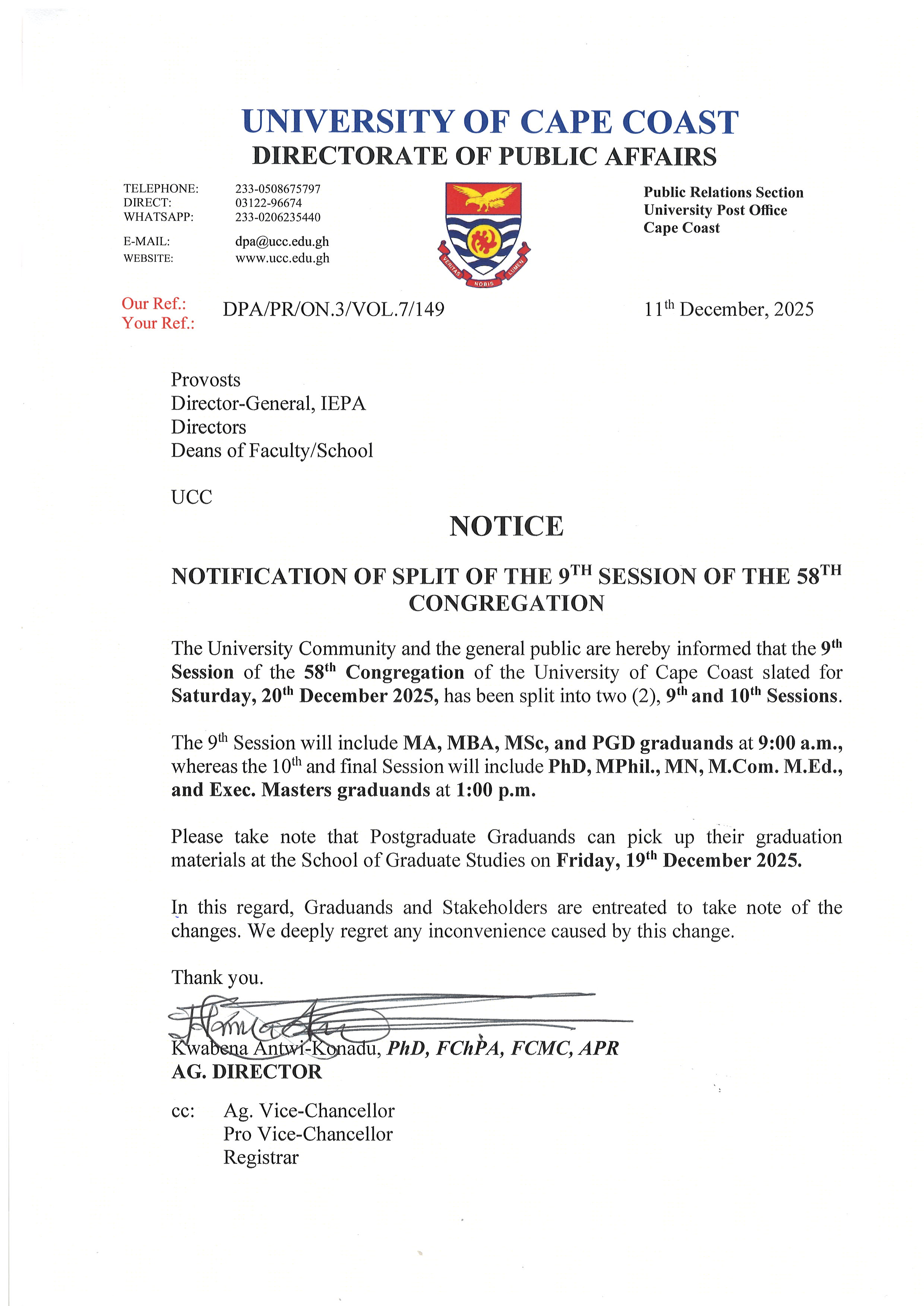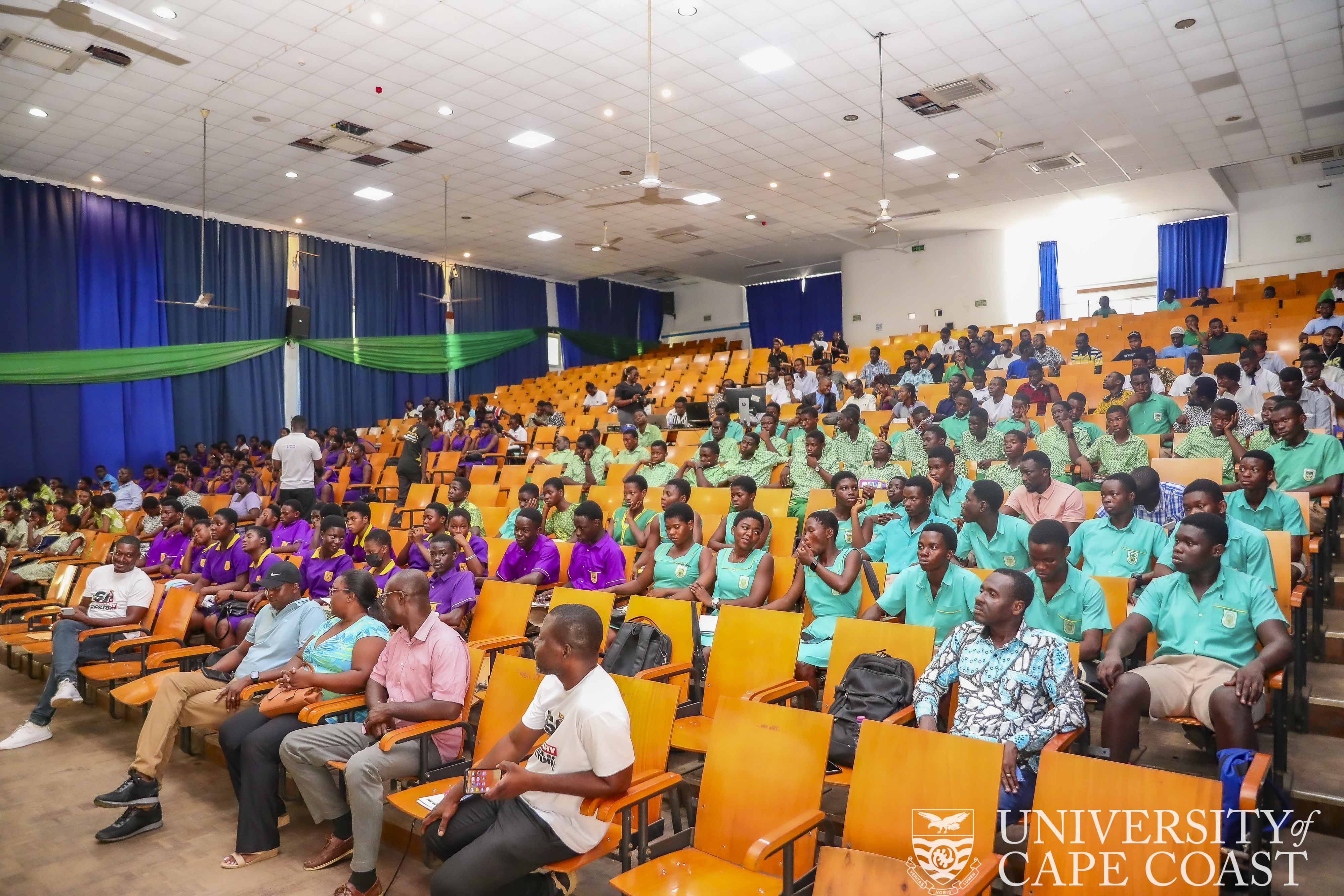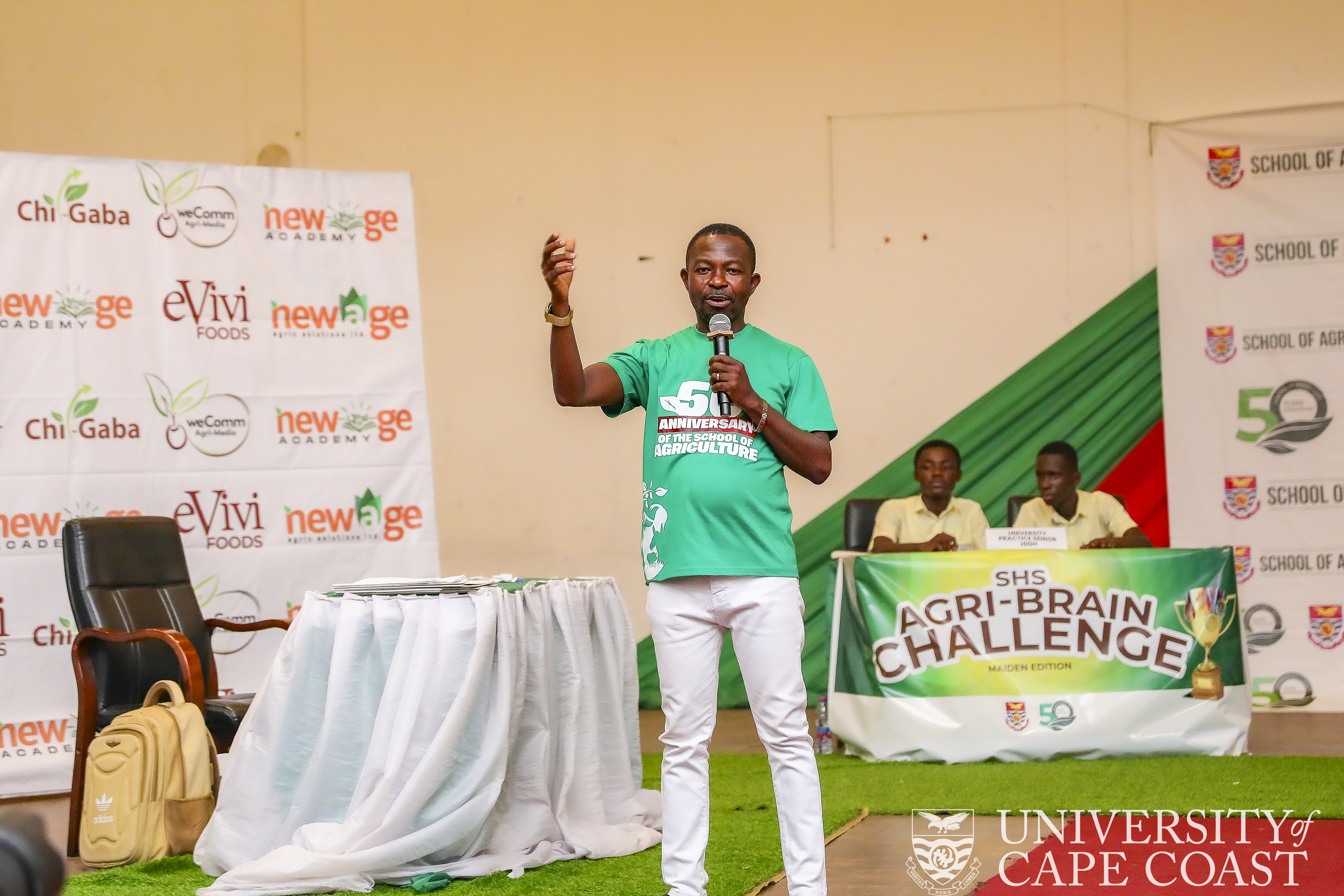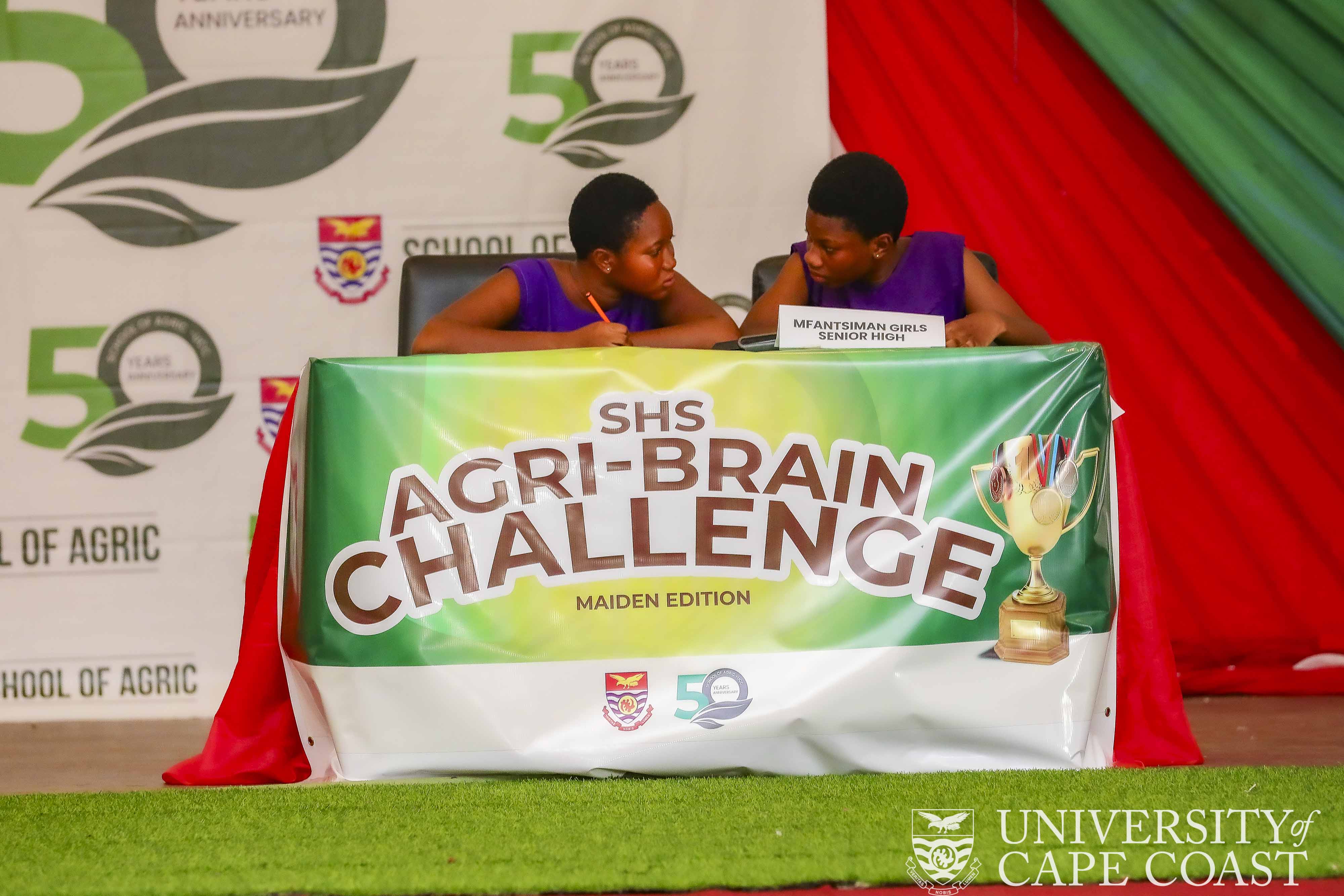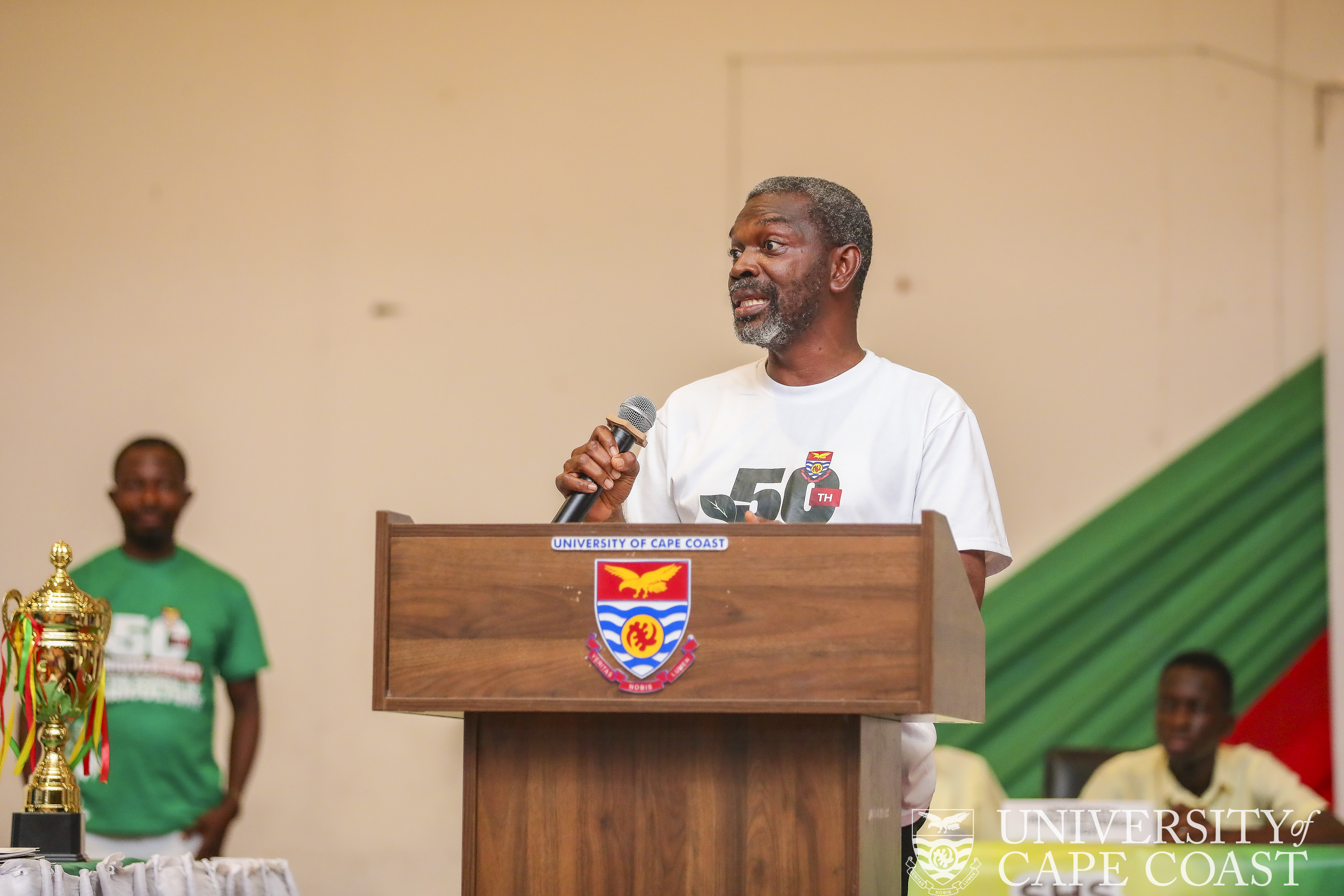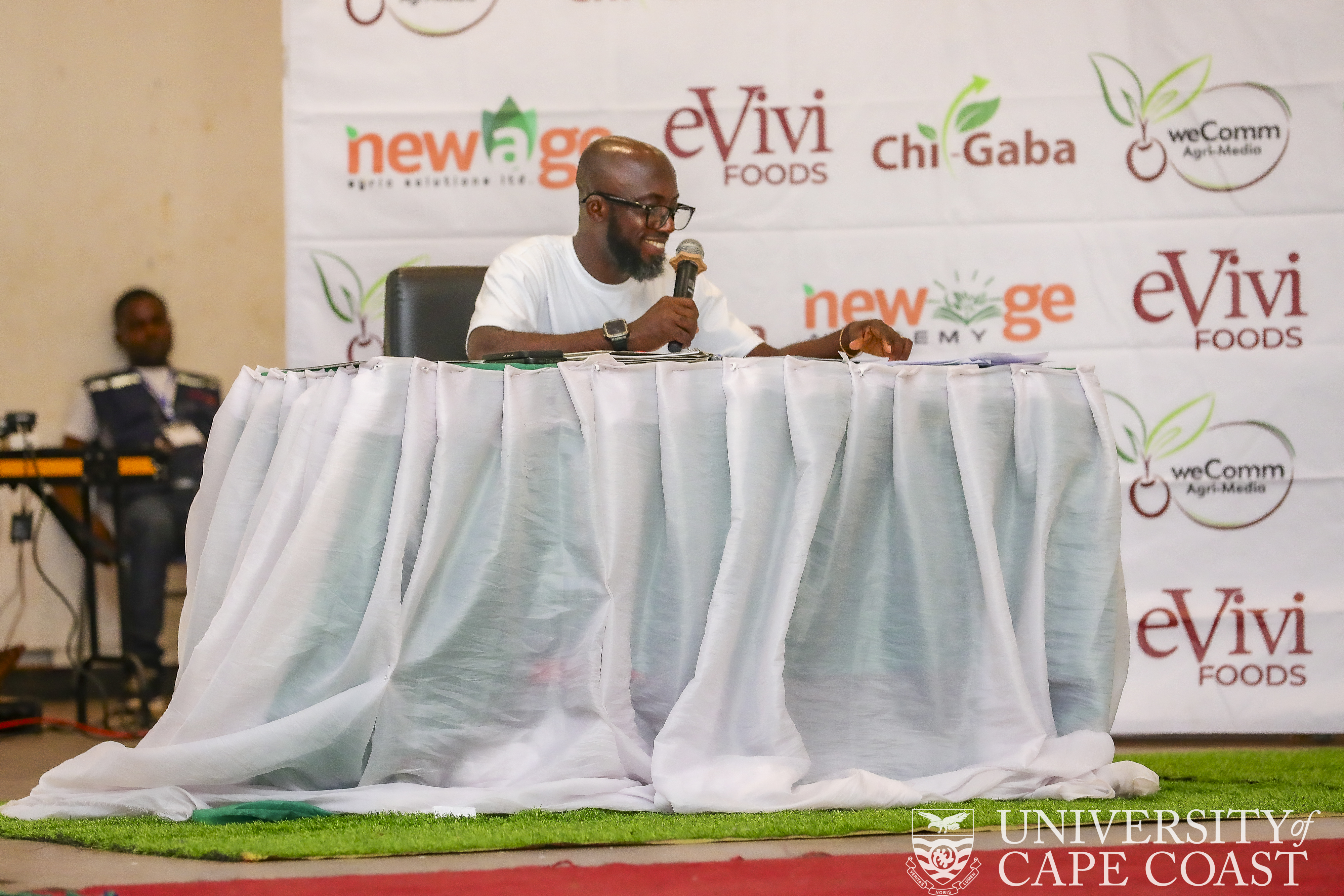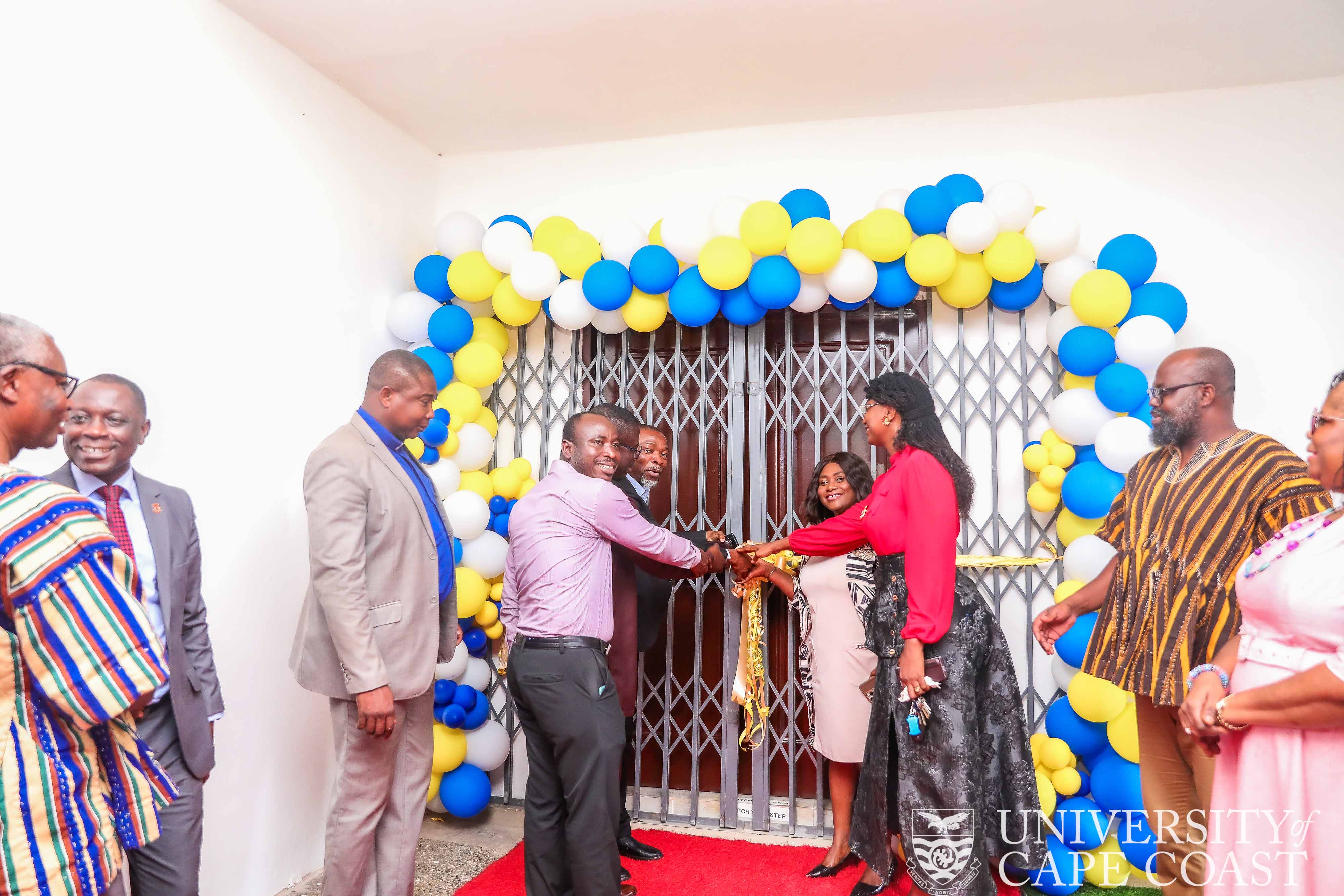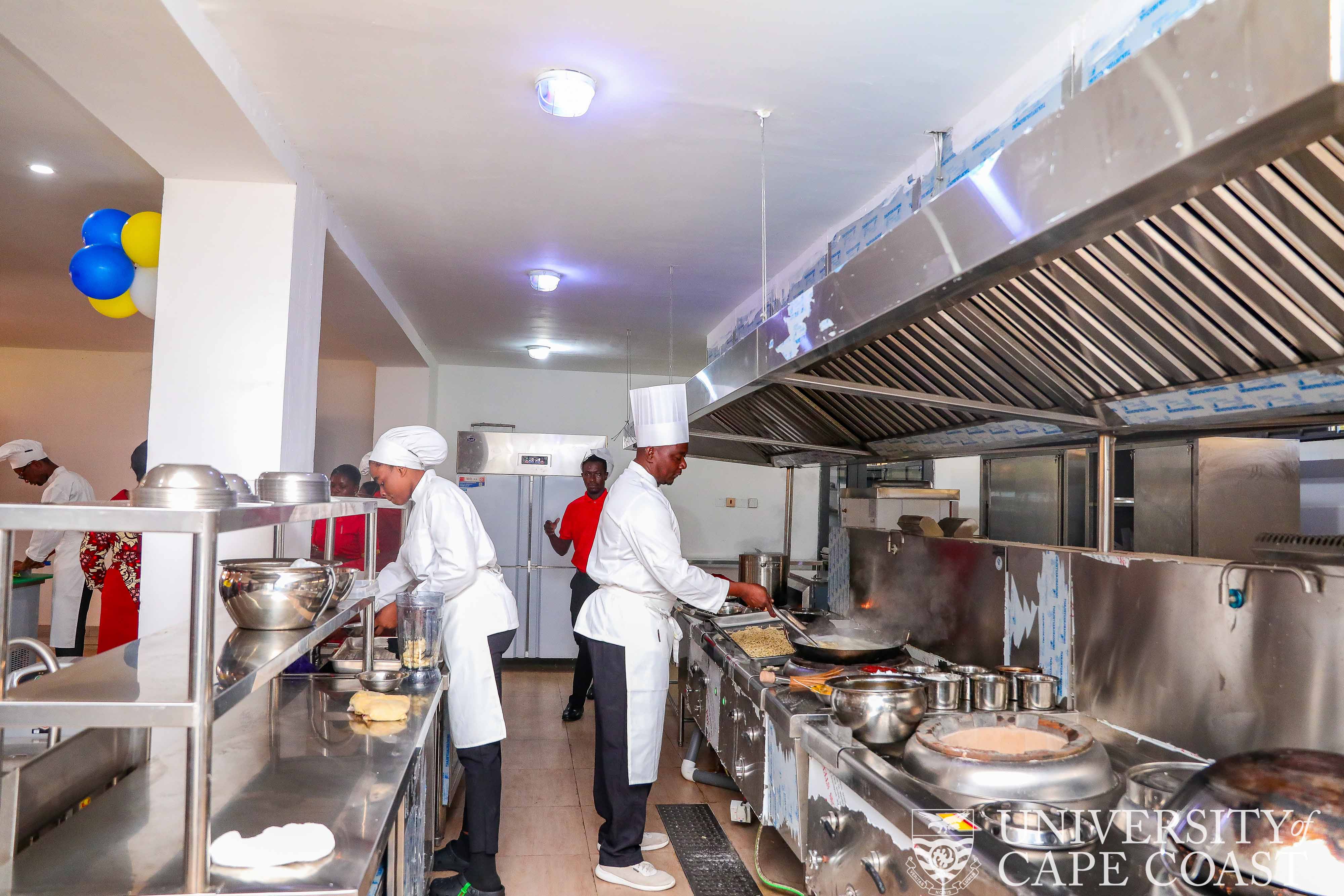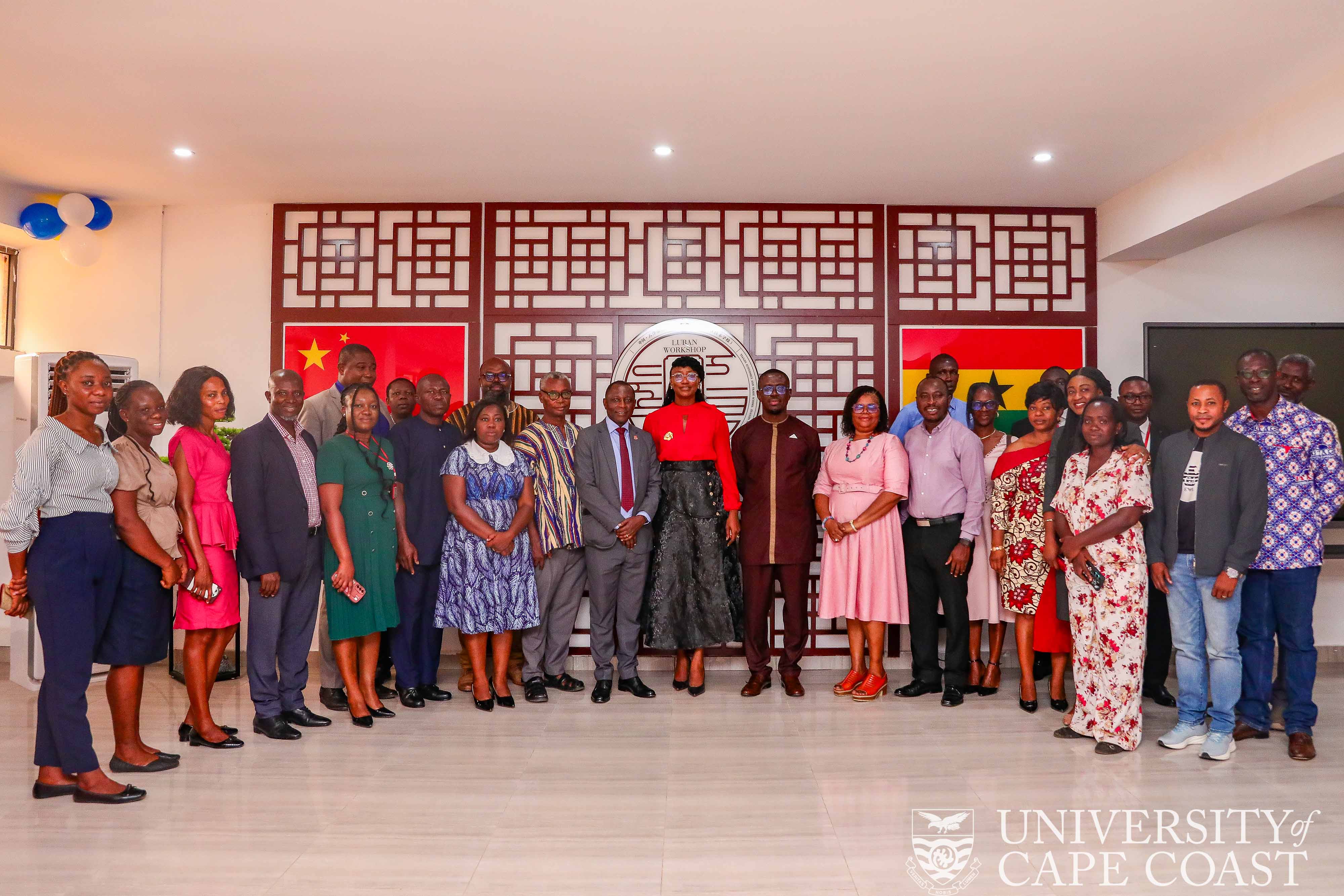The University of Cape Coast (UCC) has graduated a total of 5,100 students of the College of Distance Education (CoDE) at the first and second sessions of the University’s 58th Congregation.
The first session which awarded degrees and diplomas to 1,401 students was dedicated to Northern, Upper West, Bono, Upper East, North East, Ahafo, Bono East, Savannah and Ashanti Region.
The second session was dedicated to students from the Ashanti and Eastern.
On the other hand, the third session was dedicated to students from Western, Central, Western North, Volta and Oti regions, while the fourth session was students of Switch 3.1 and Non-Residential.
The sessions saw 2,832 female students, representing 55.5%, awarded various degrees, with 2,368 males representing 44.5 % conferred upon degrees.
The well-attended ceremony of the first session saw 141 students graduating with First Class, 387 Second Class Upper, 534 Second Class Lower, 267 Third Class and 161 pass.
The second session also saw 47 first class, 397 second class upper division, 369 second class lower division, 229 third class, and 85 pass.
Some graduands at the event
Ms. Theresa Maale Adjobu, from Ada College of Education Study Center, emerged as the overall best-graduating student, with a CGPA of 3.9195.
Awards including cash prizes, plaques and scholarships were given to some deserving students.
Addressing the graduates, the Acting Vice-Chancellor, Prof. Denis Aheto, congratulated the students for their perseverance, dedication, and resilience.
“Many of you balanced demanding work schedules, family responsibilities, and academic commitments,” he added.
He continued: “ As we celebrate this milestone, remember that graduation is not an end but a beginning. May you step forward with confidence, guided by the knowledge you have gained and inspired by the purpose you carry.”
Prof. Denis Aheto addressing the graduands
Prof. Aheto noted that the UCC had ensured that students studying at a distance had access to the same academic resources, feedback systems, library services, and student support mechanisms enjoyed by their colleagues on campus.
“The boundaries that once separated distance learning from traditional face-to-face education have been dissolved by deliberate institutional investment and innovation.
The Acting Vice-Chancellor reminded them that: “As graduates of this University, you carry degrees that are respected, competitive, and globally relevant. You have demonstrated the ability to learn independently, manage competing priorities, and leverage modern technologies to achieve academic success. These competencies define the future of work.”
He urged them to be innovators, ethical leaders, problem solvers who uplift communities and contribute meaningfully to national development.
“You have overcome challenges before, and I have every confidence that you will excel in the opportunities ahead,” he added.
Prof. Aheto noted that the Kumasi Campus of CoDE had been commissioned along with other completed residential facilities, stressing: “thereby expanding our learning infrastructure and improving student welfare in the region.”
He announced that the Research Monitoring System of the College had been set for rollout to strengthen transparency and accountability in postgraduate supervision.
“Additionally, AI-enabled Learning Management System scheduled for deployment in the coming academic year, will position CoDE at the forefront of technology-driven education in Ghana.”
Justice William Atuguba
The Chairman of UCC Governing Council, Justice William Atuguba, entreated the graduates to apply their knowledge and skills with discipline and diligence to guarantee them success.
“ Go the extra mile in everything you do to excel,” he said, adding that “ refrain from anything that will bring the University's name into disrepute,” he added.

